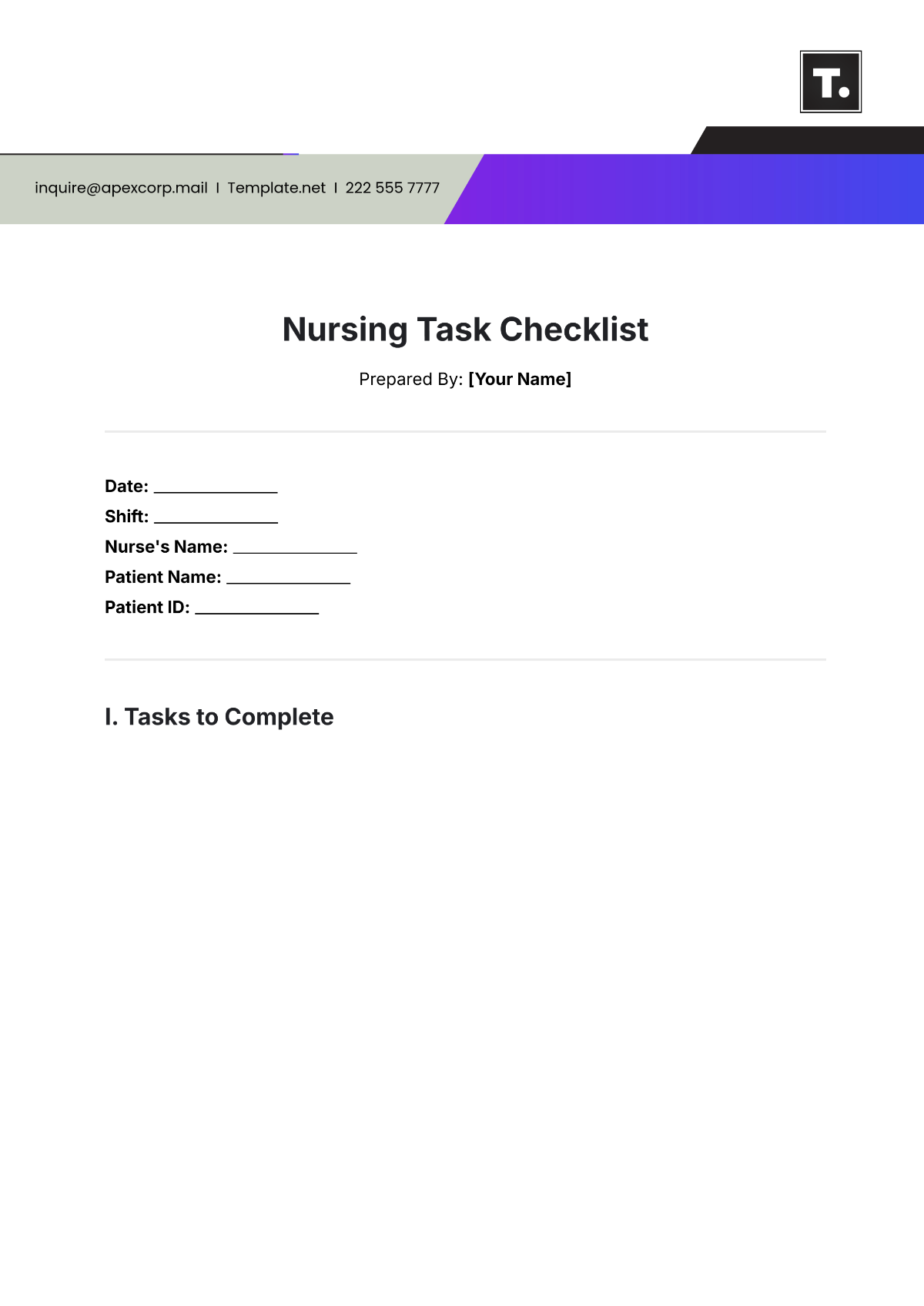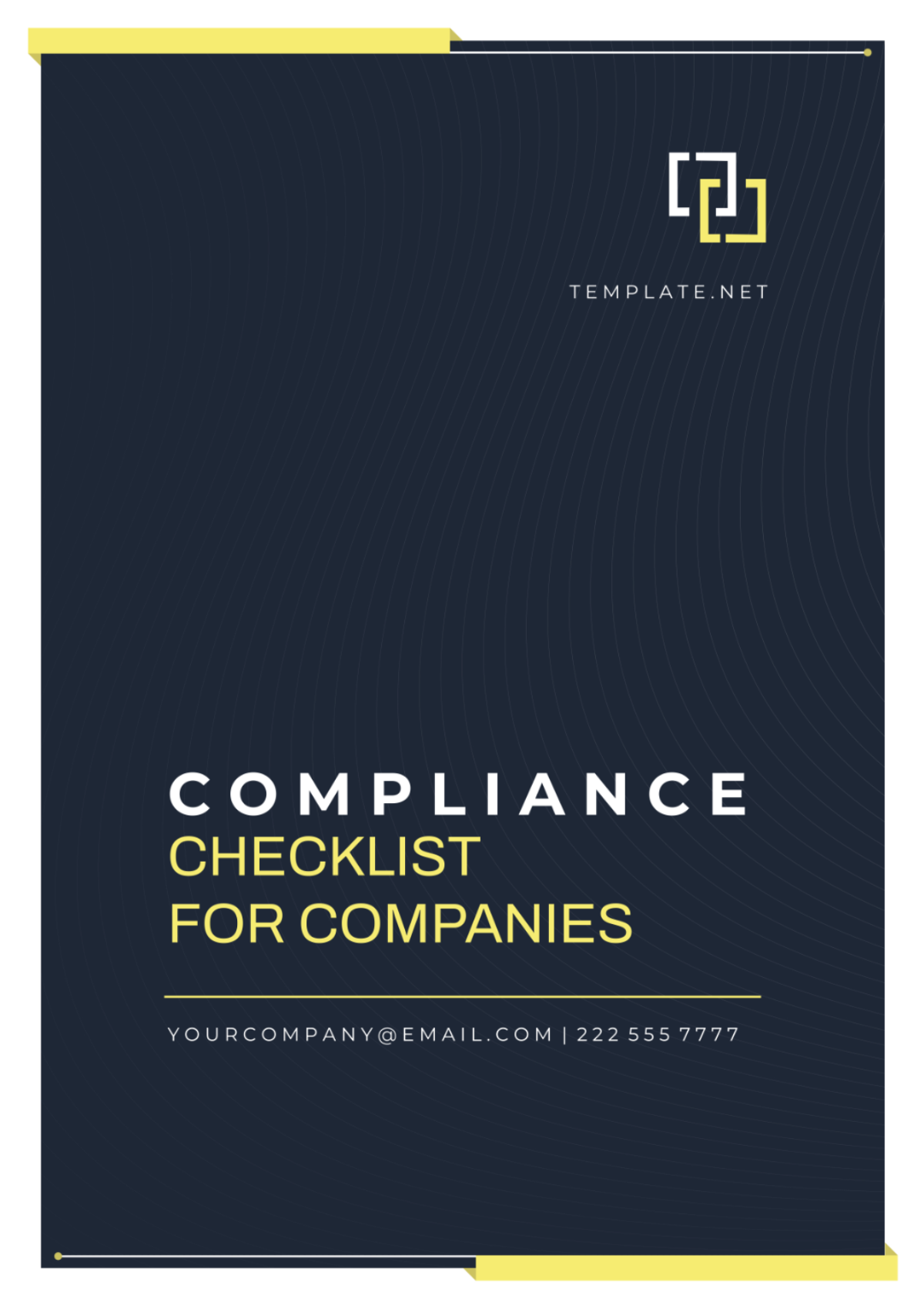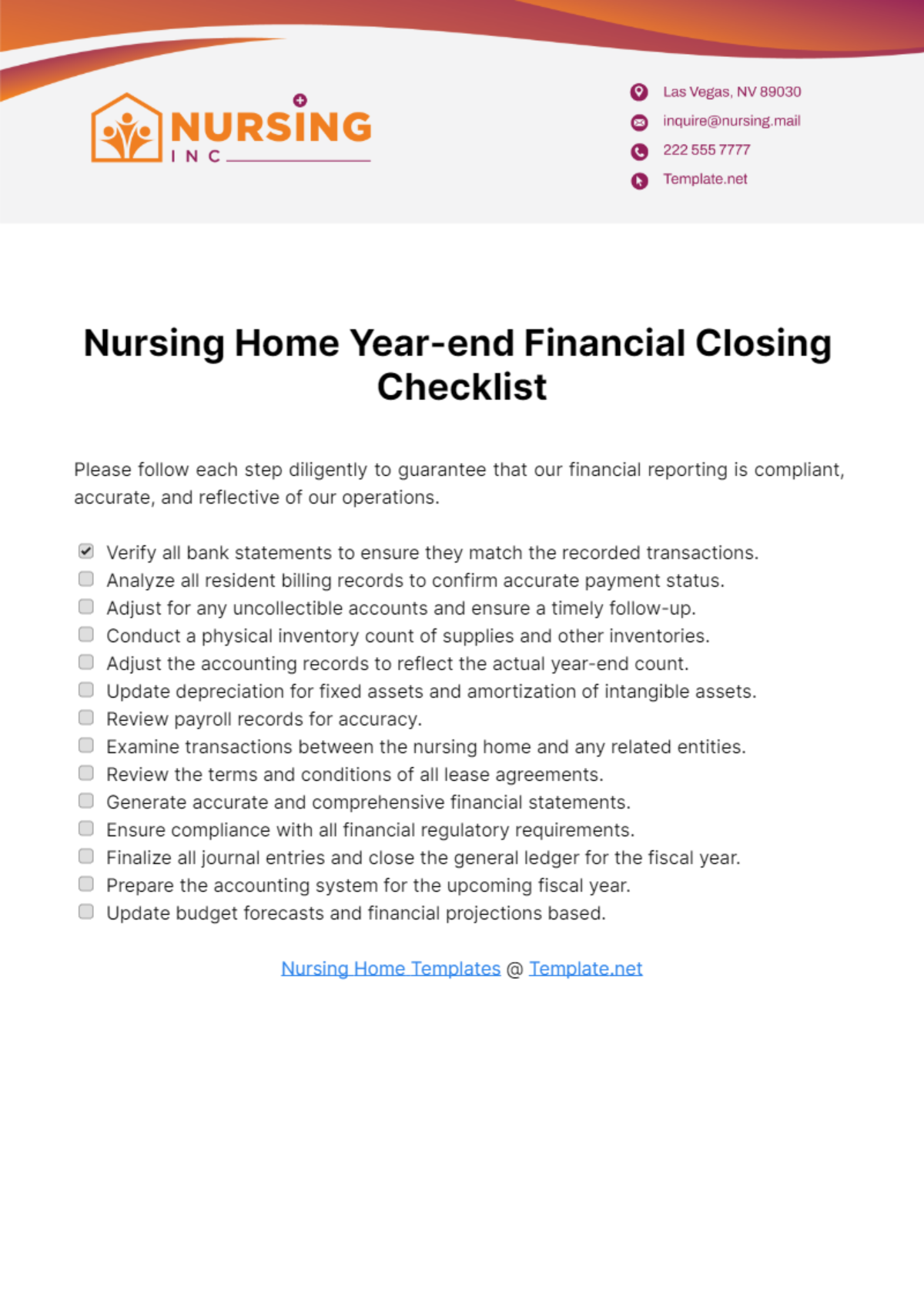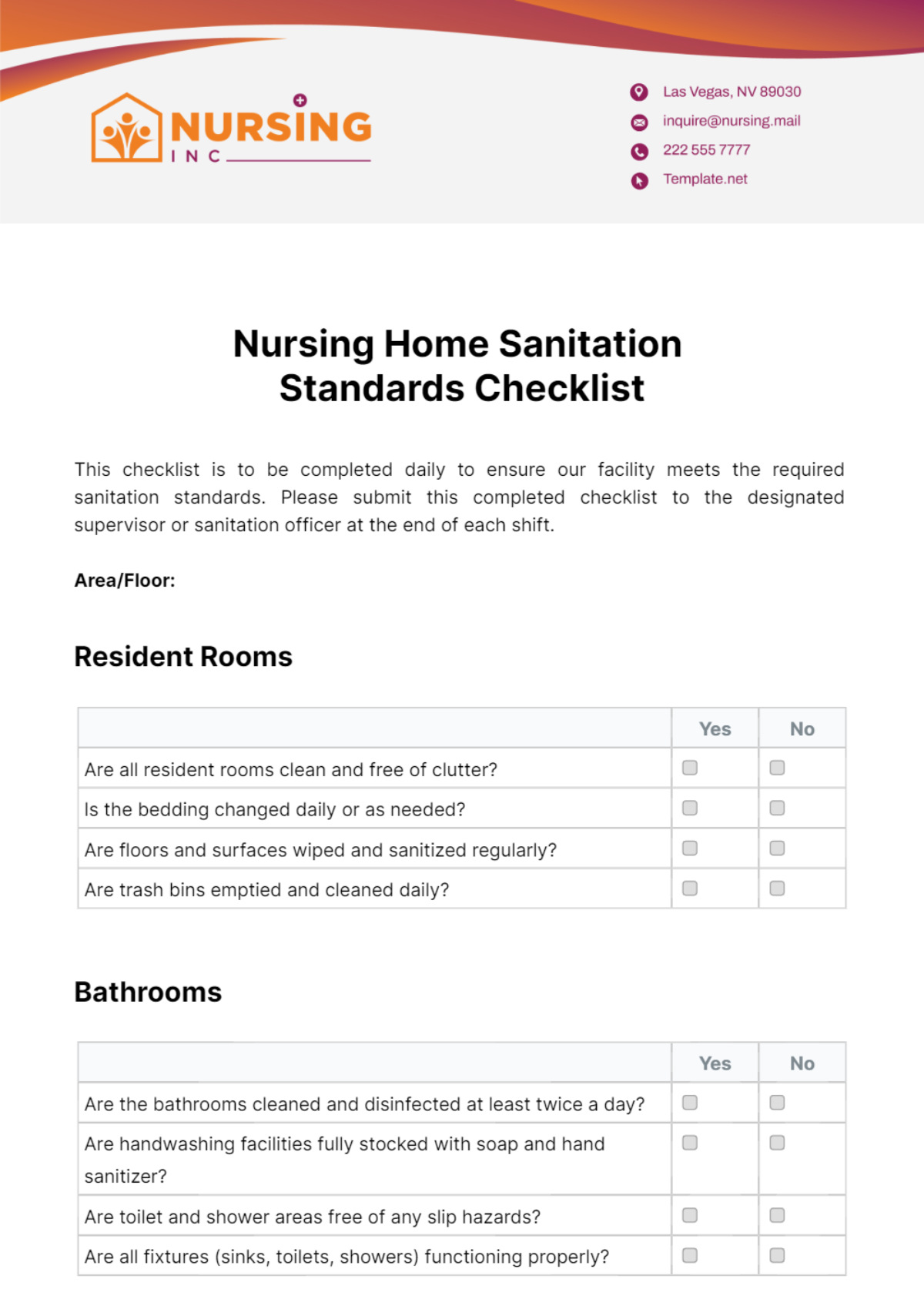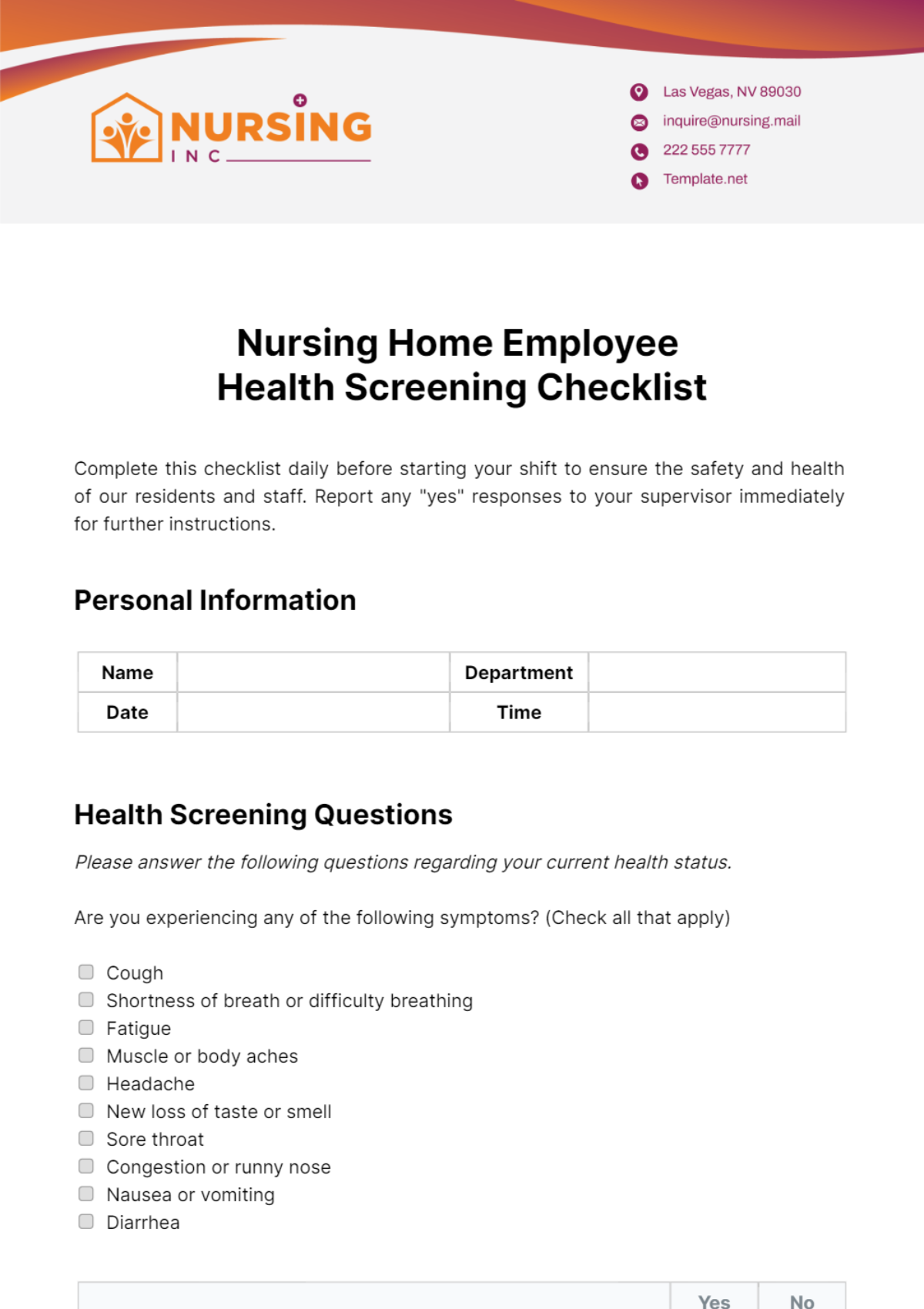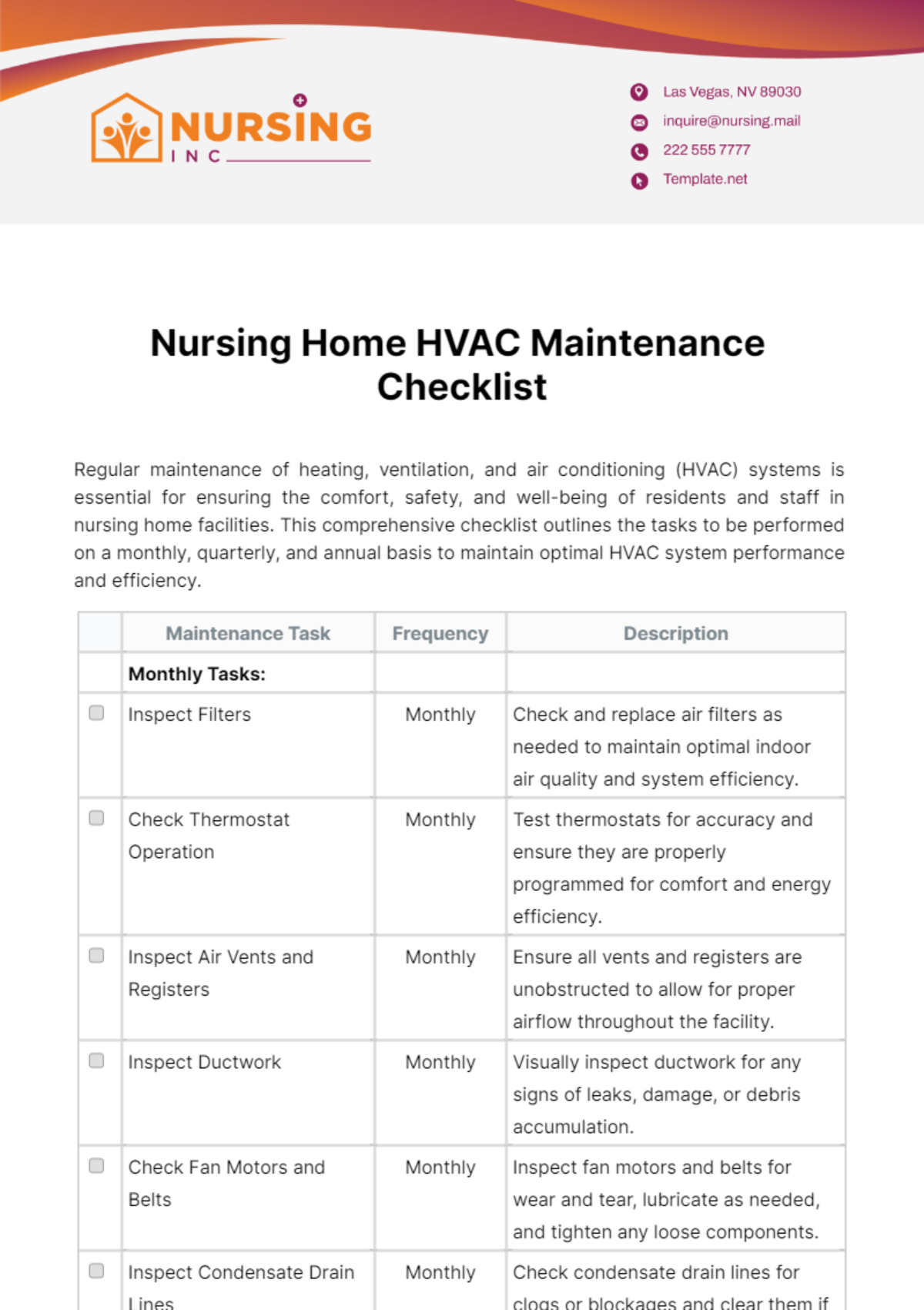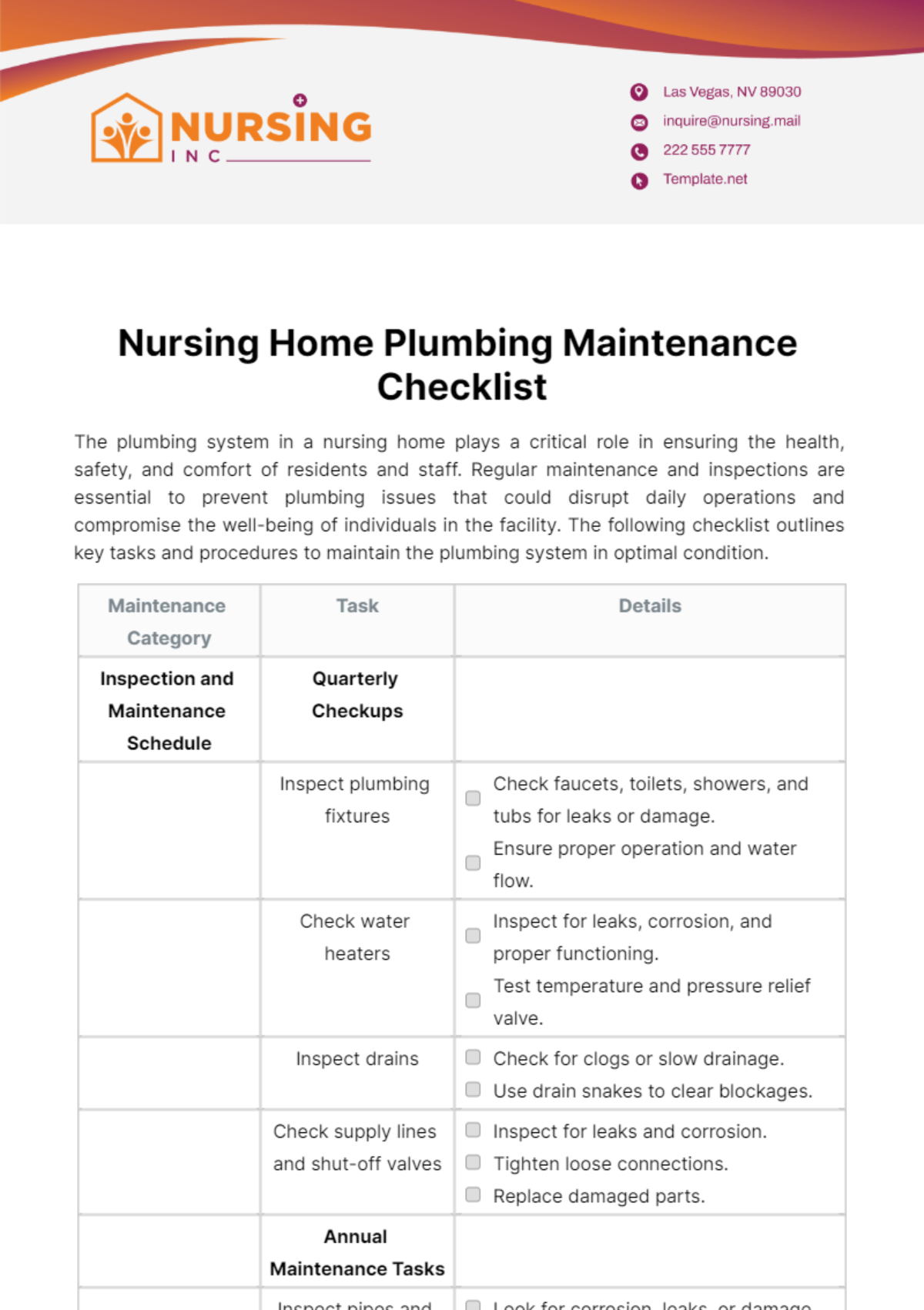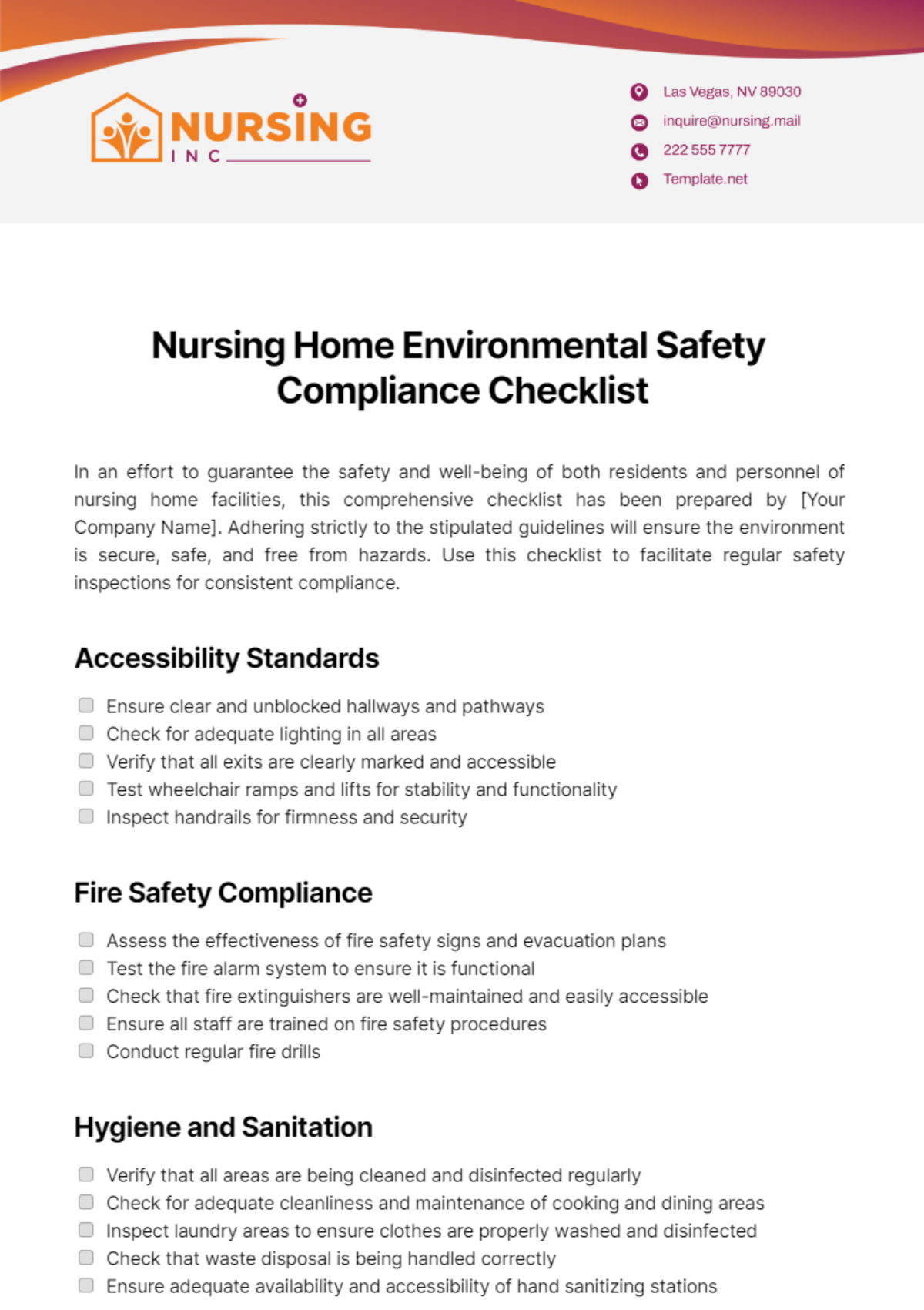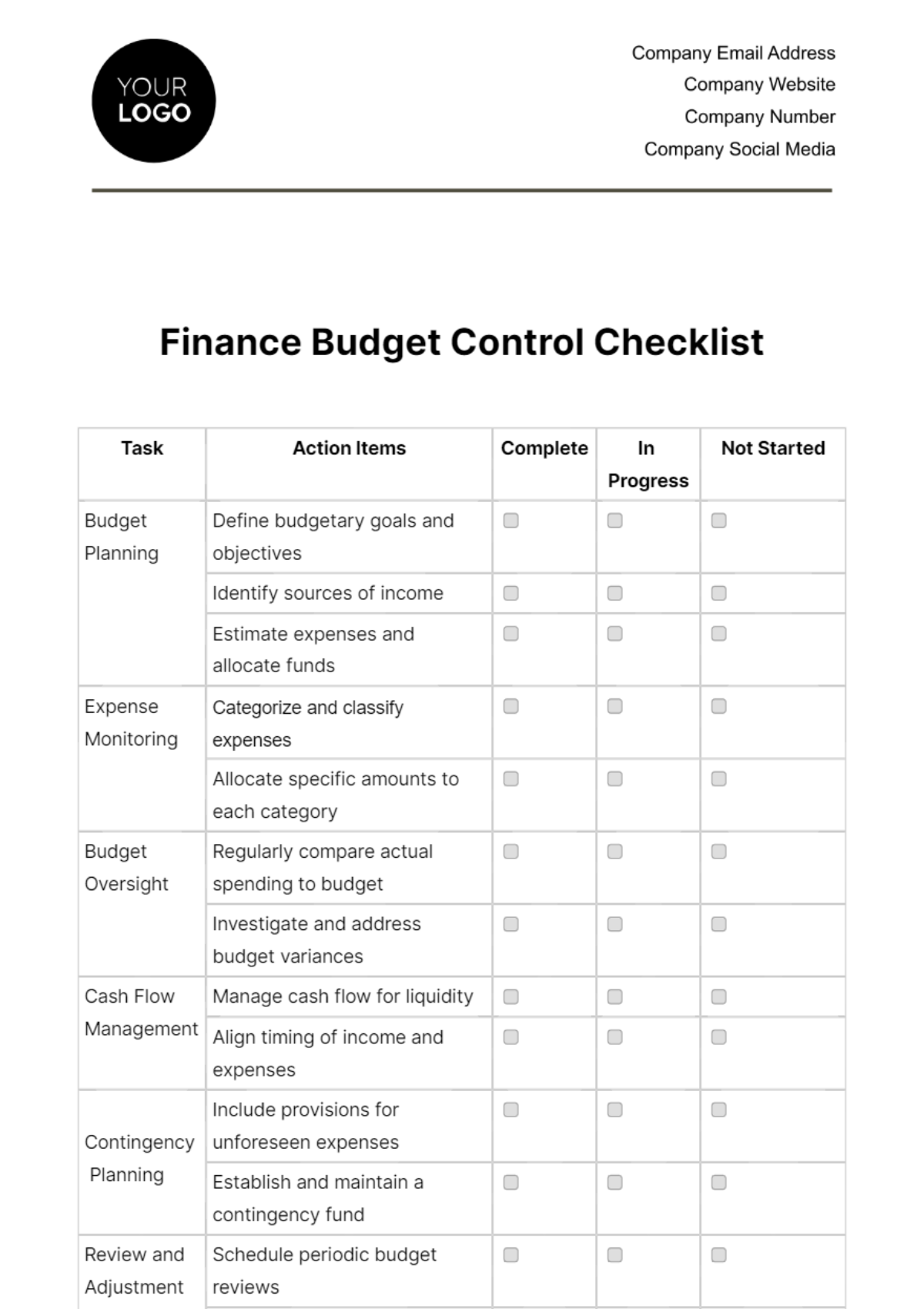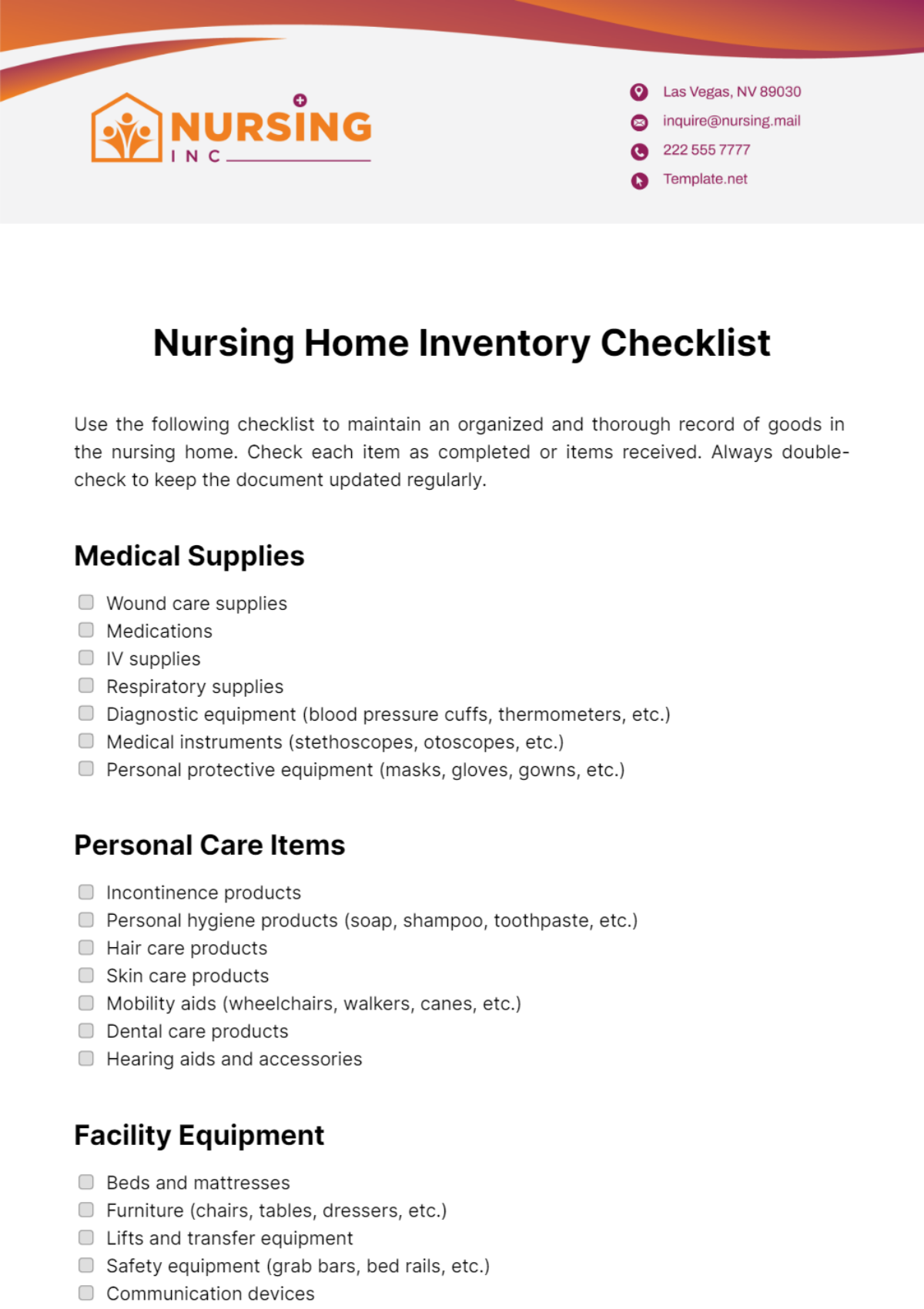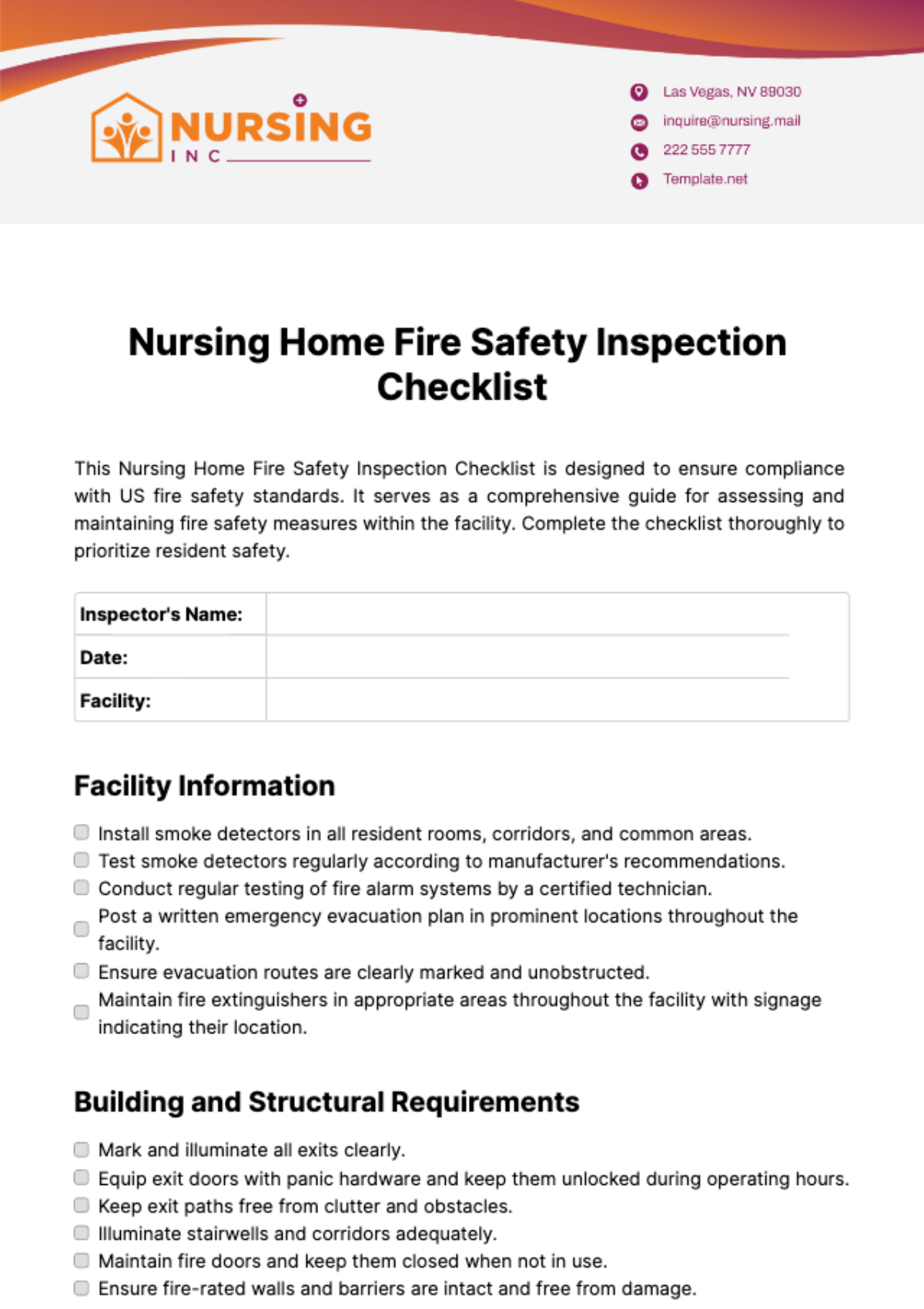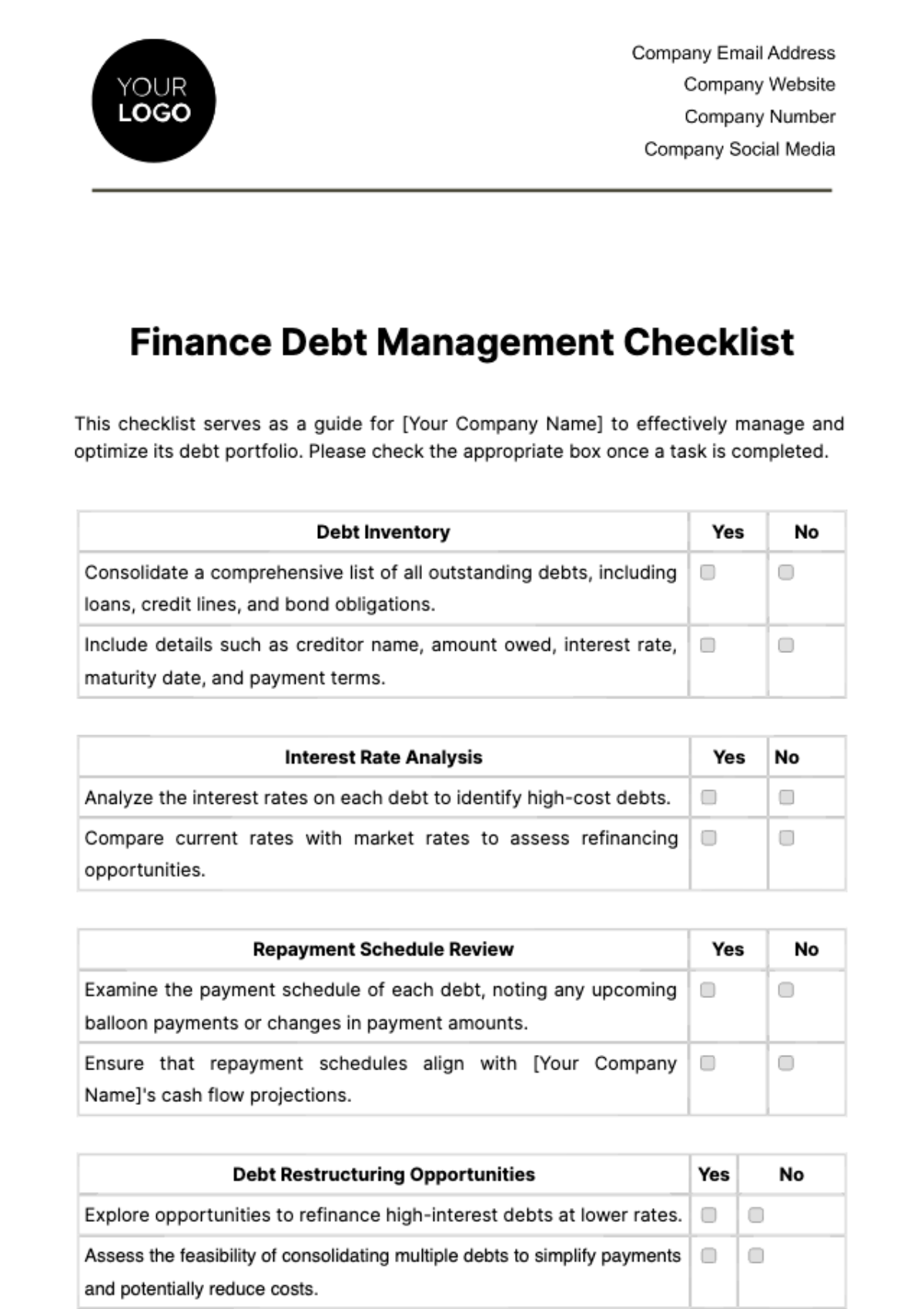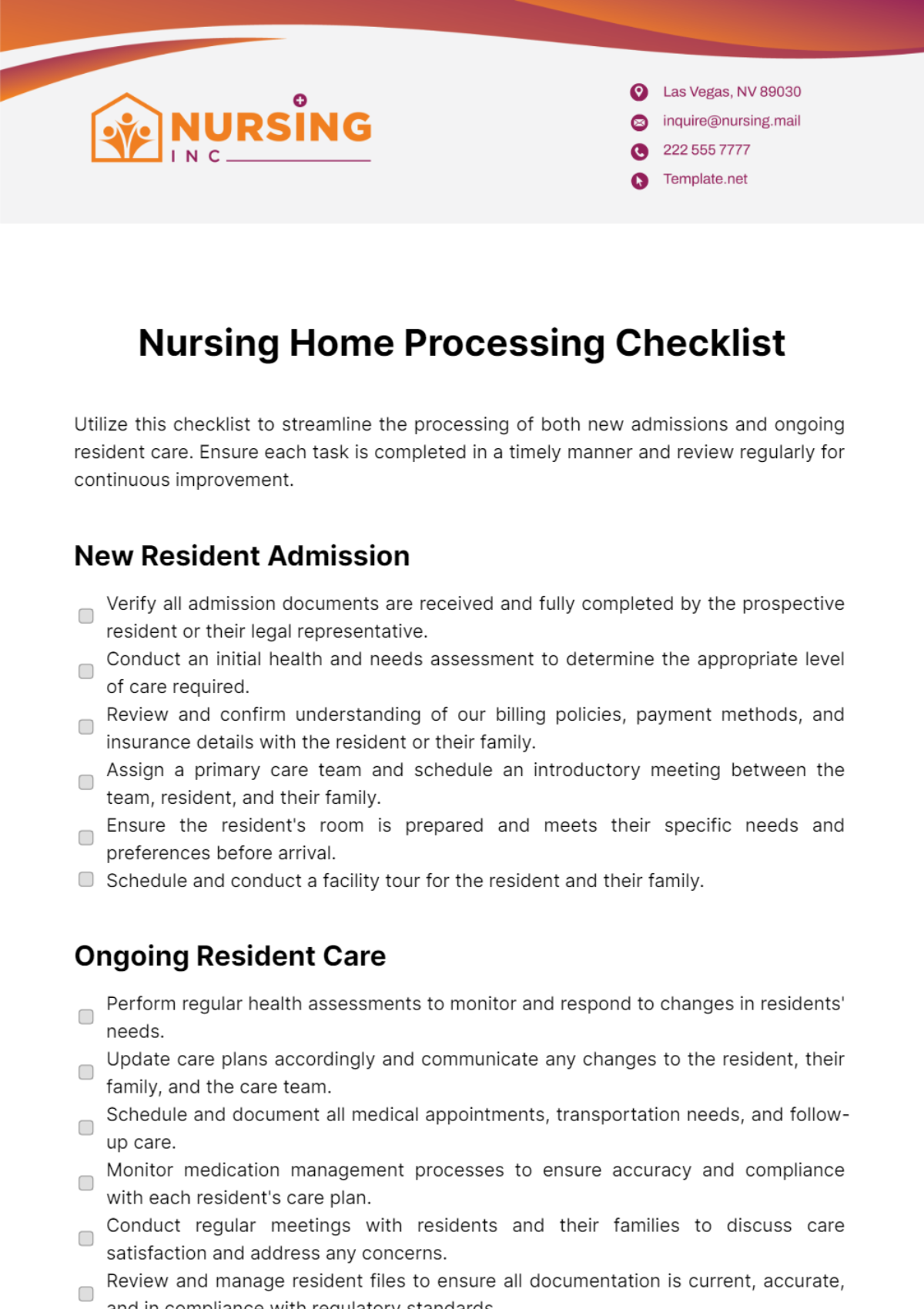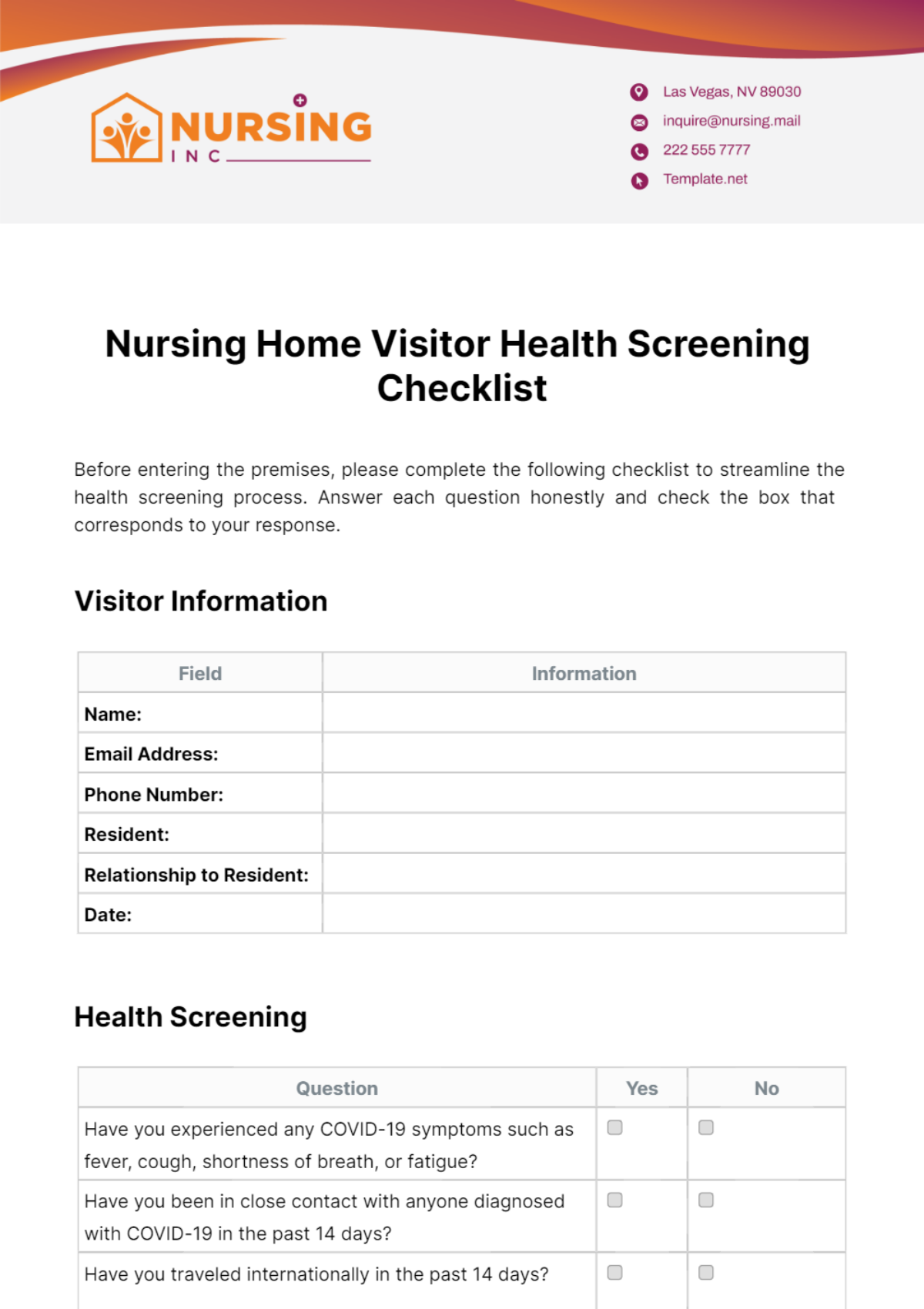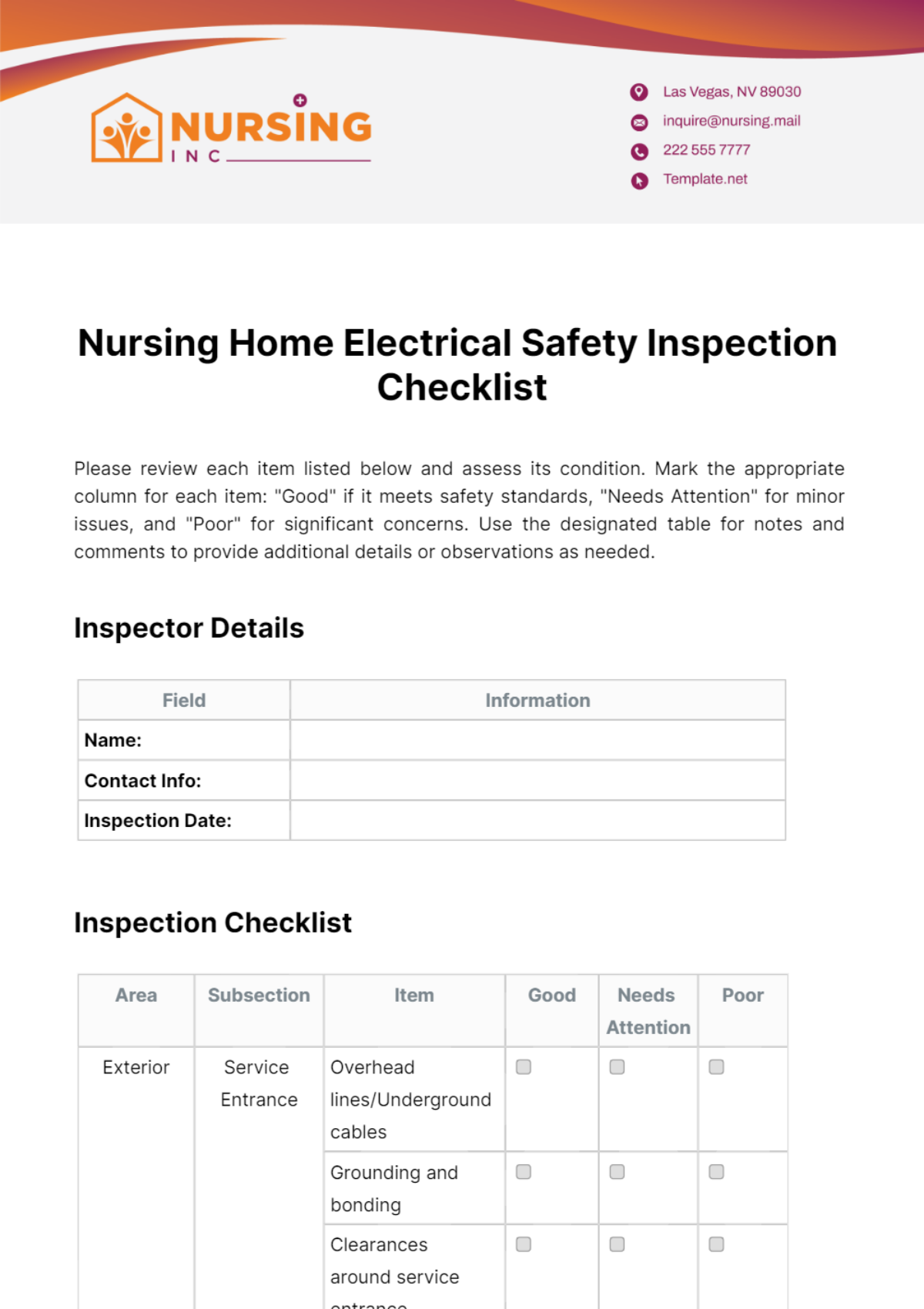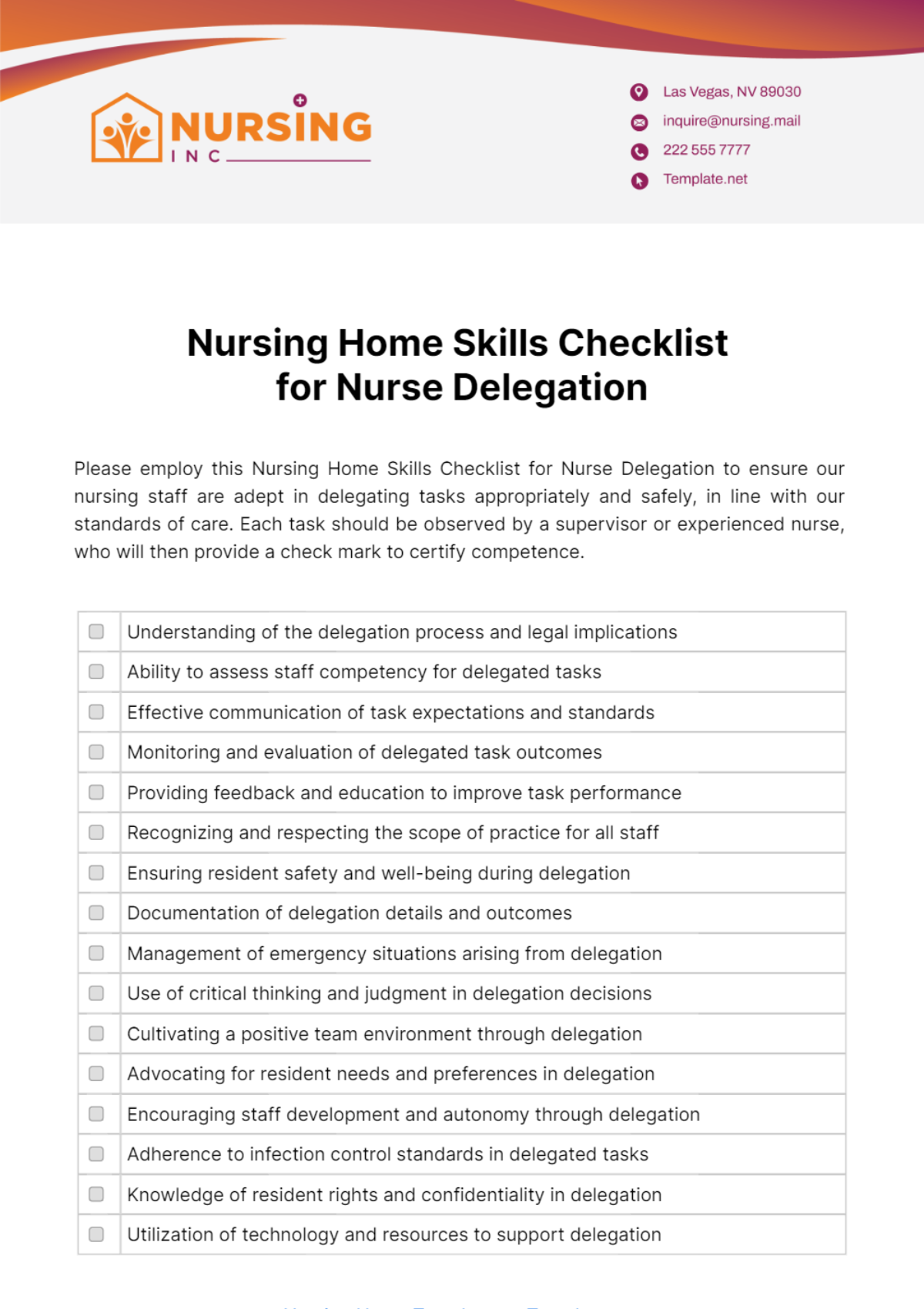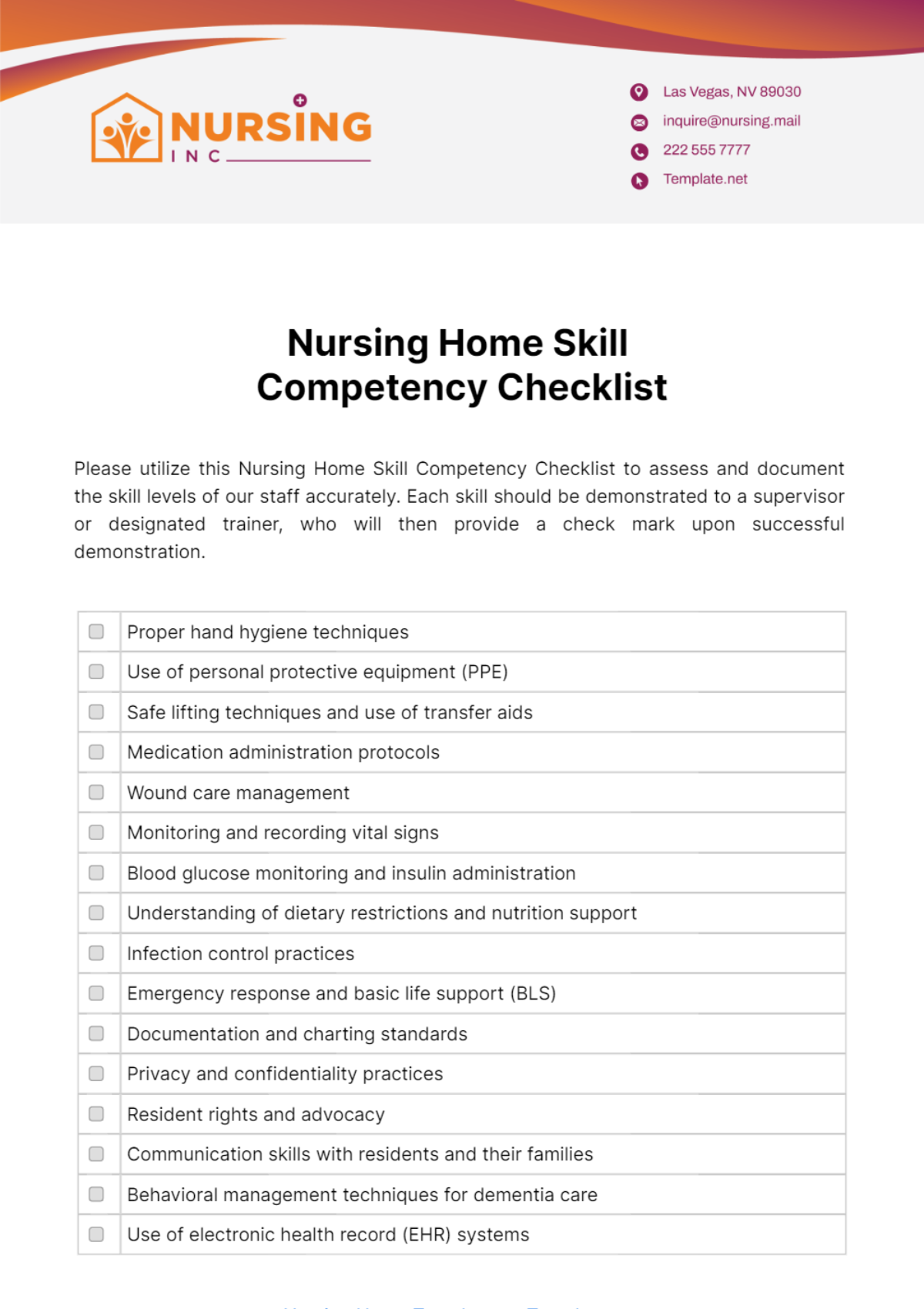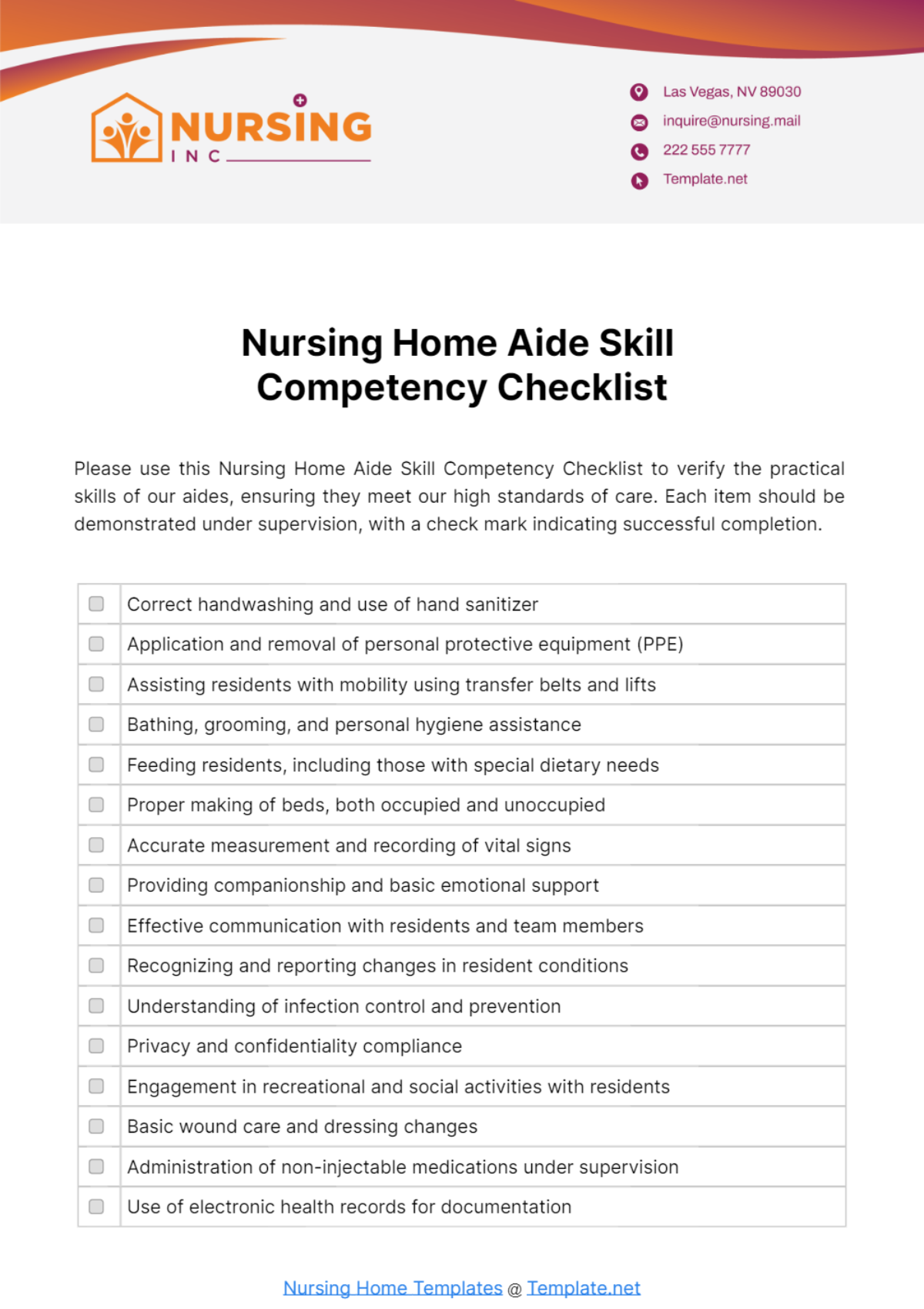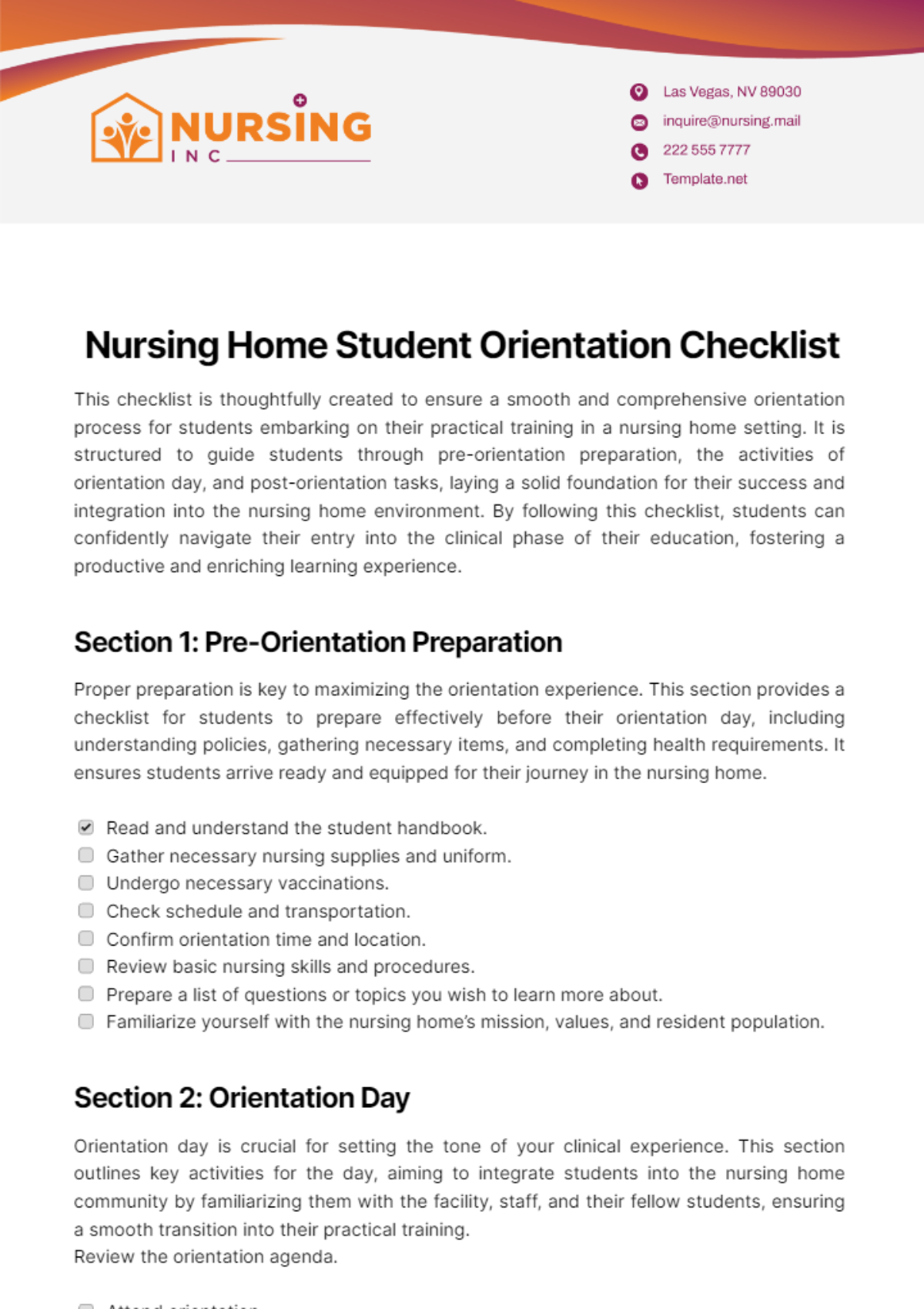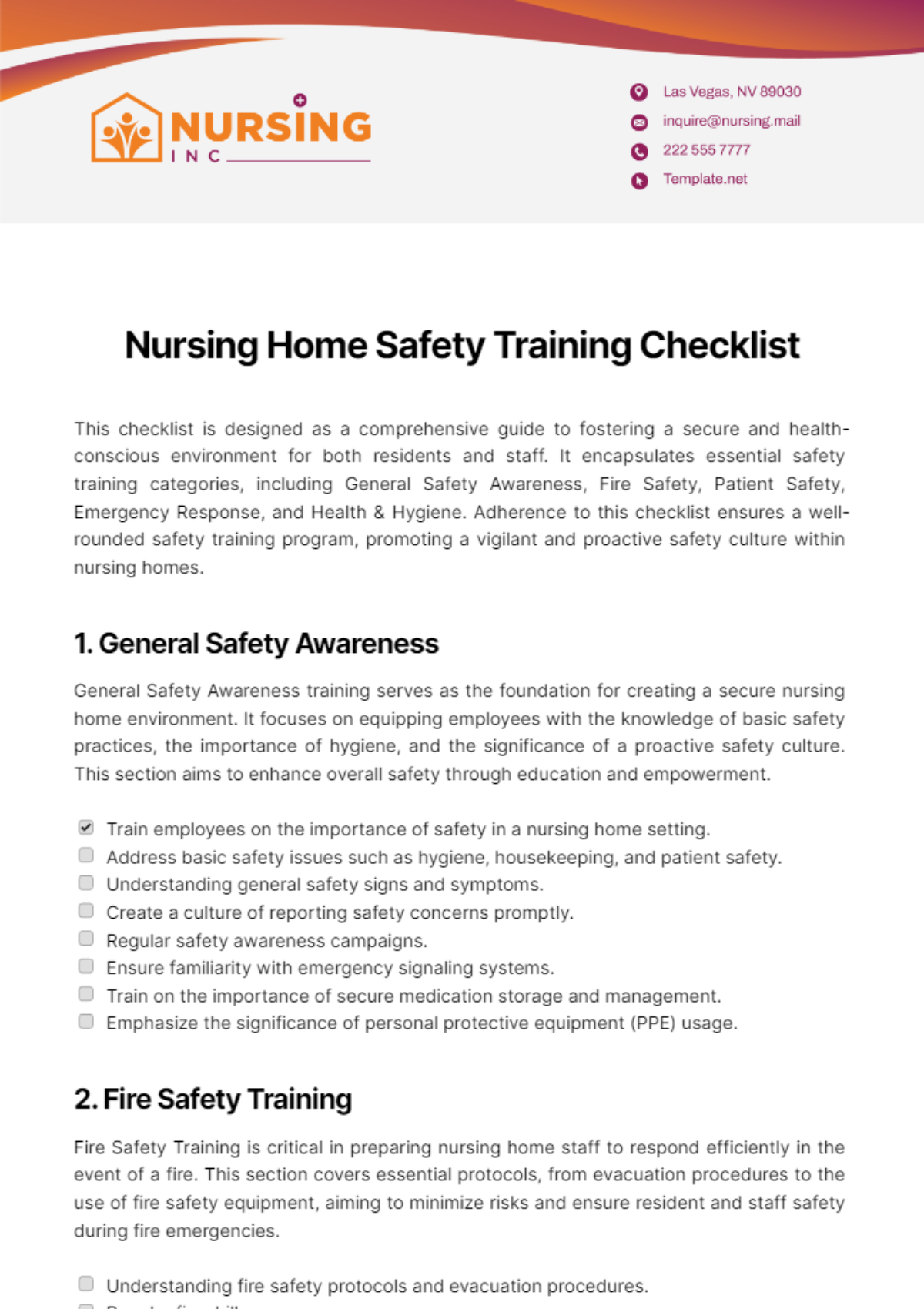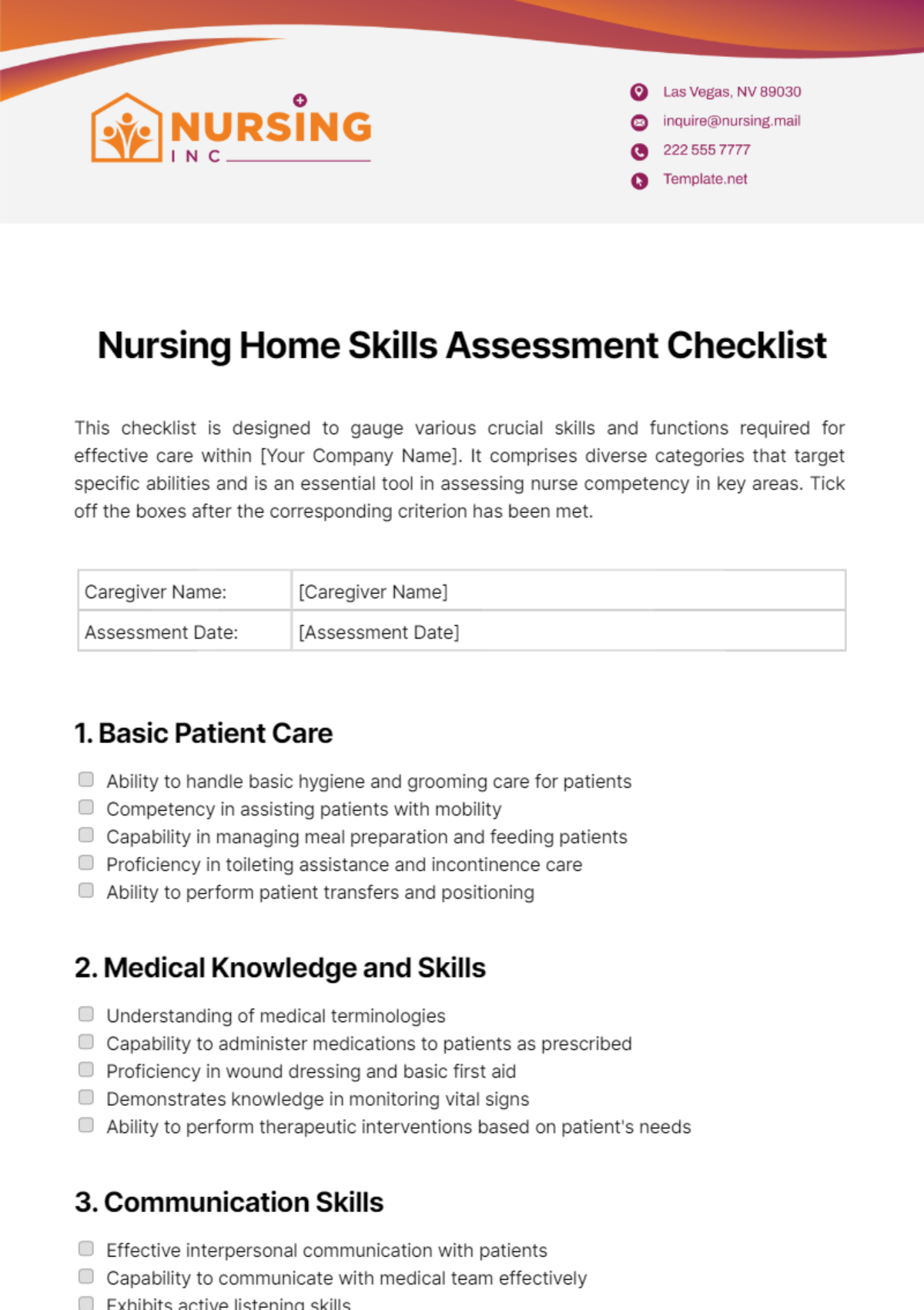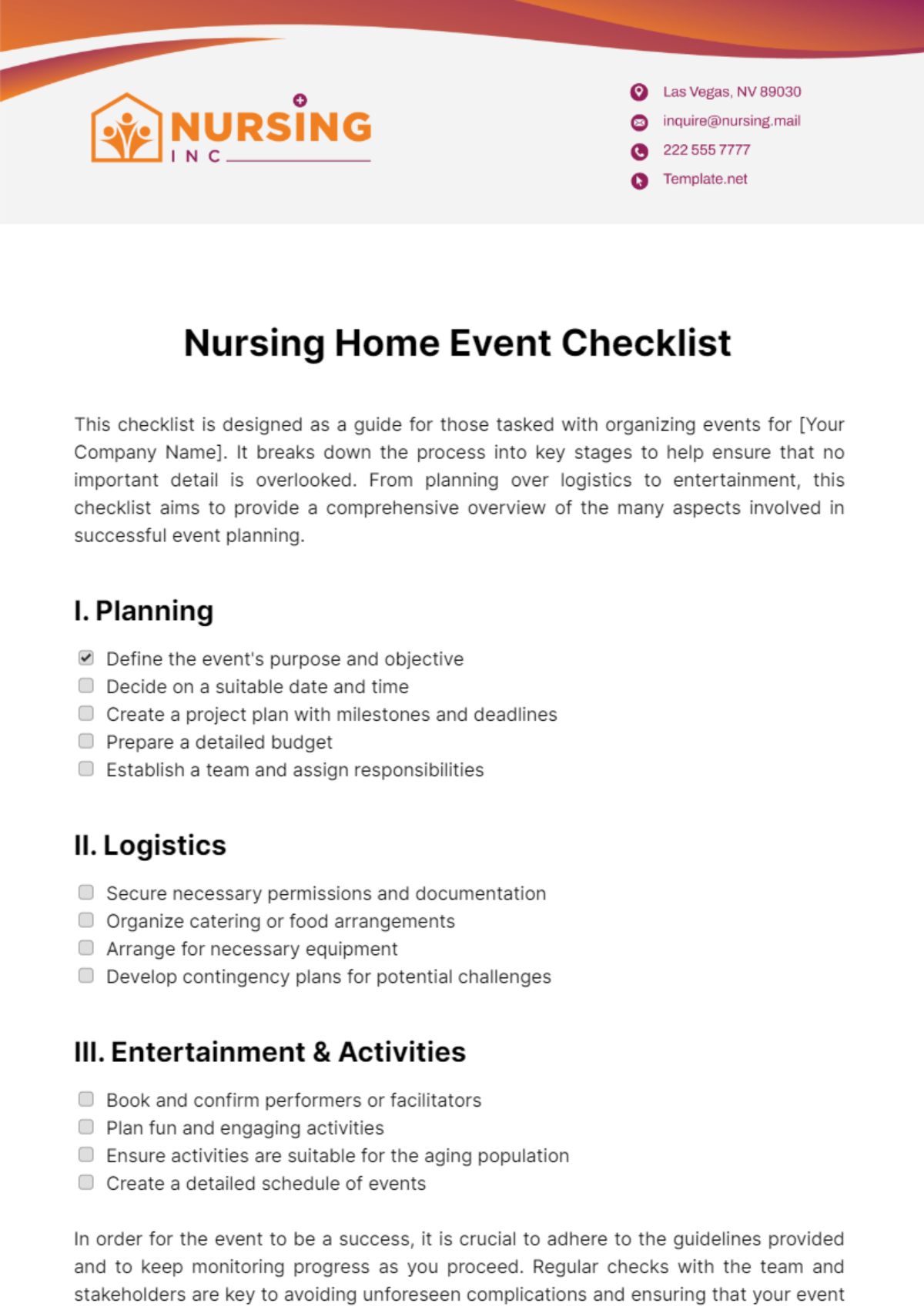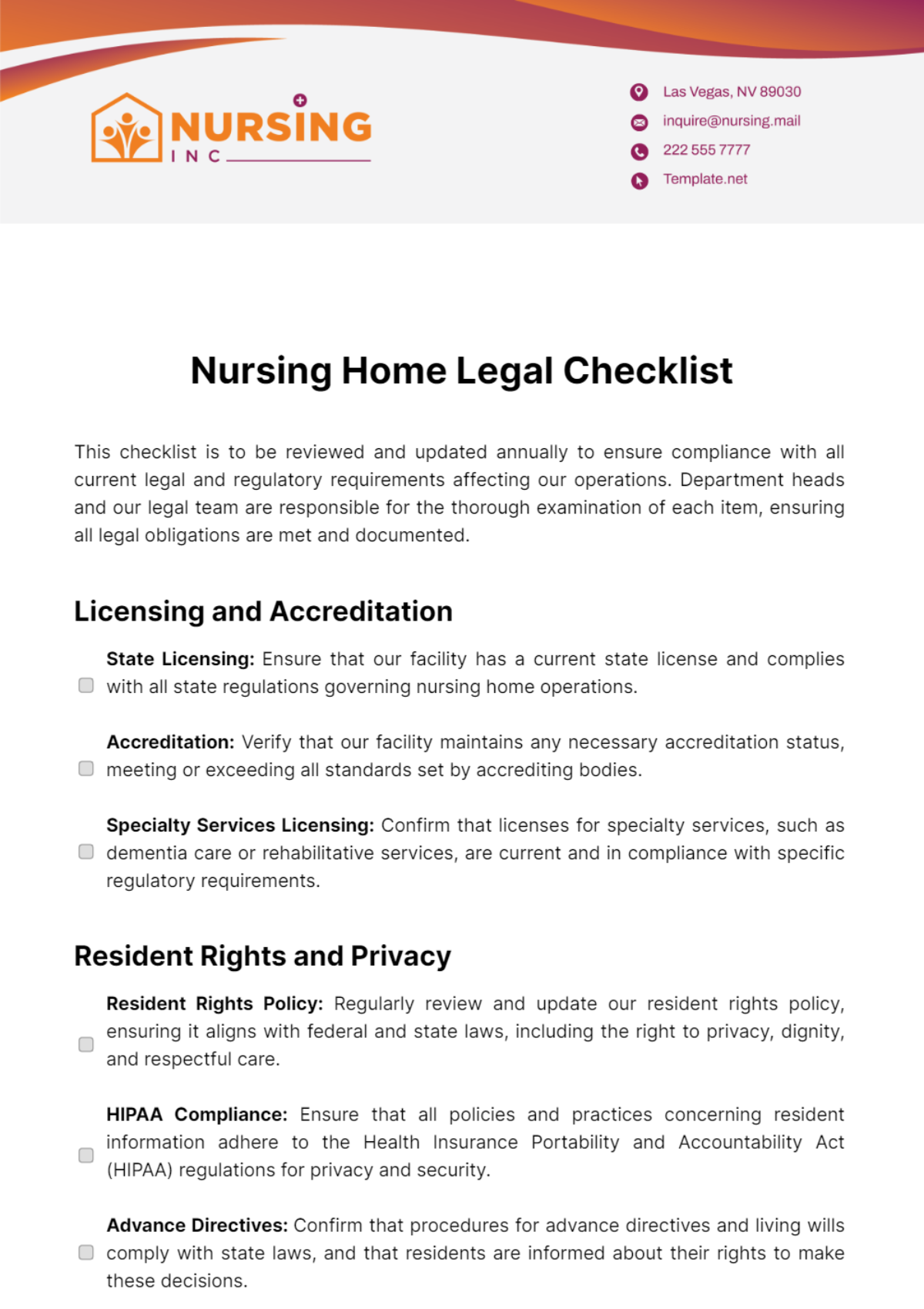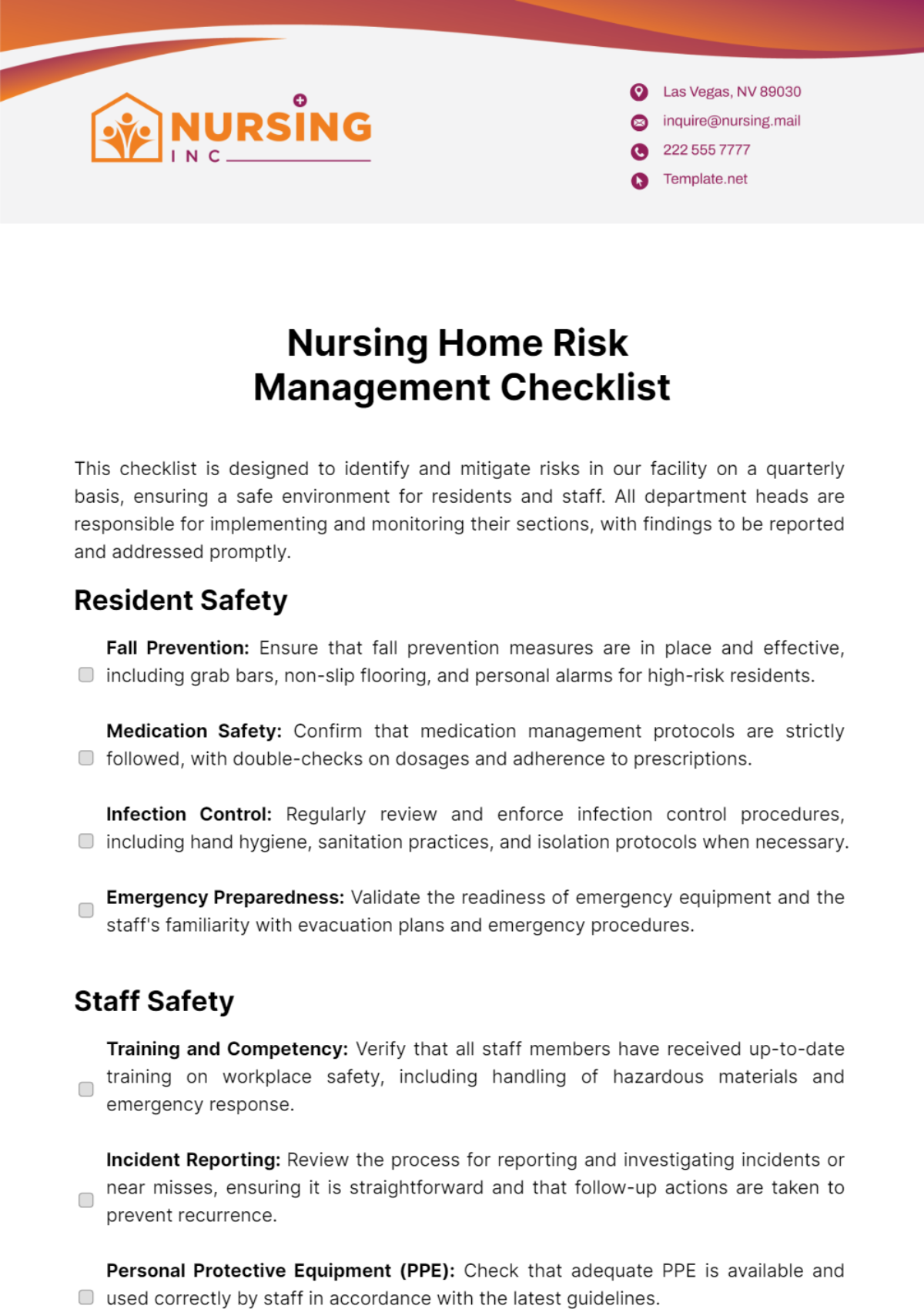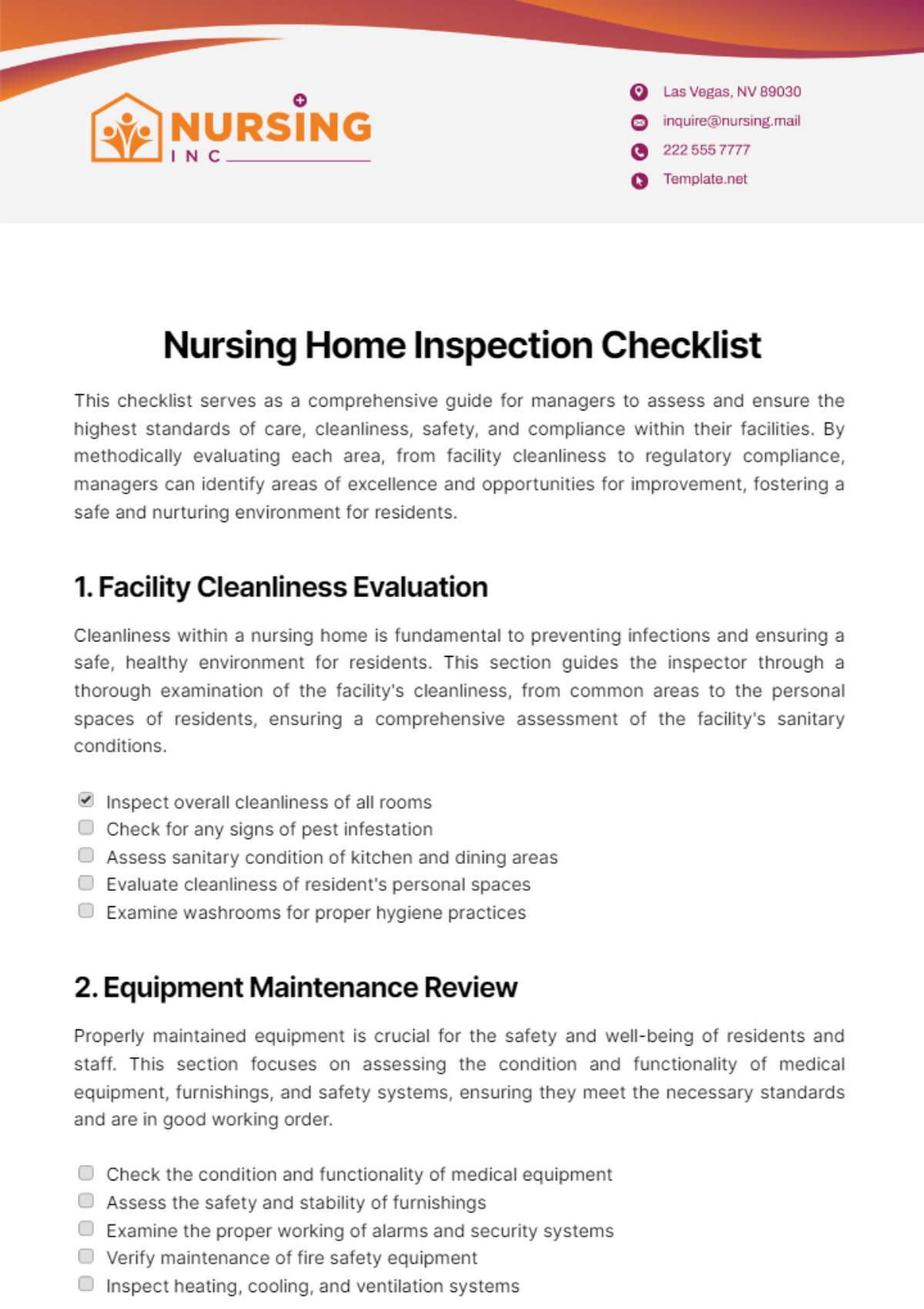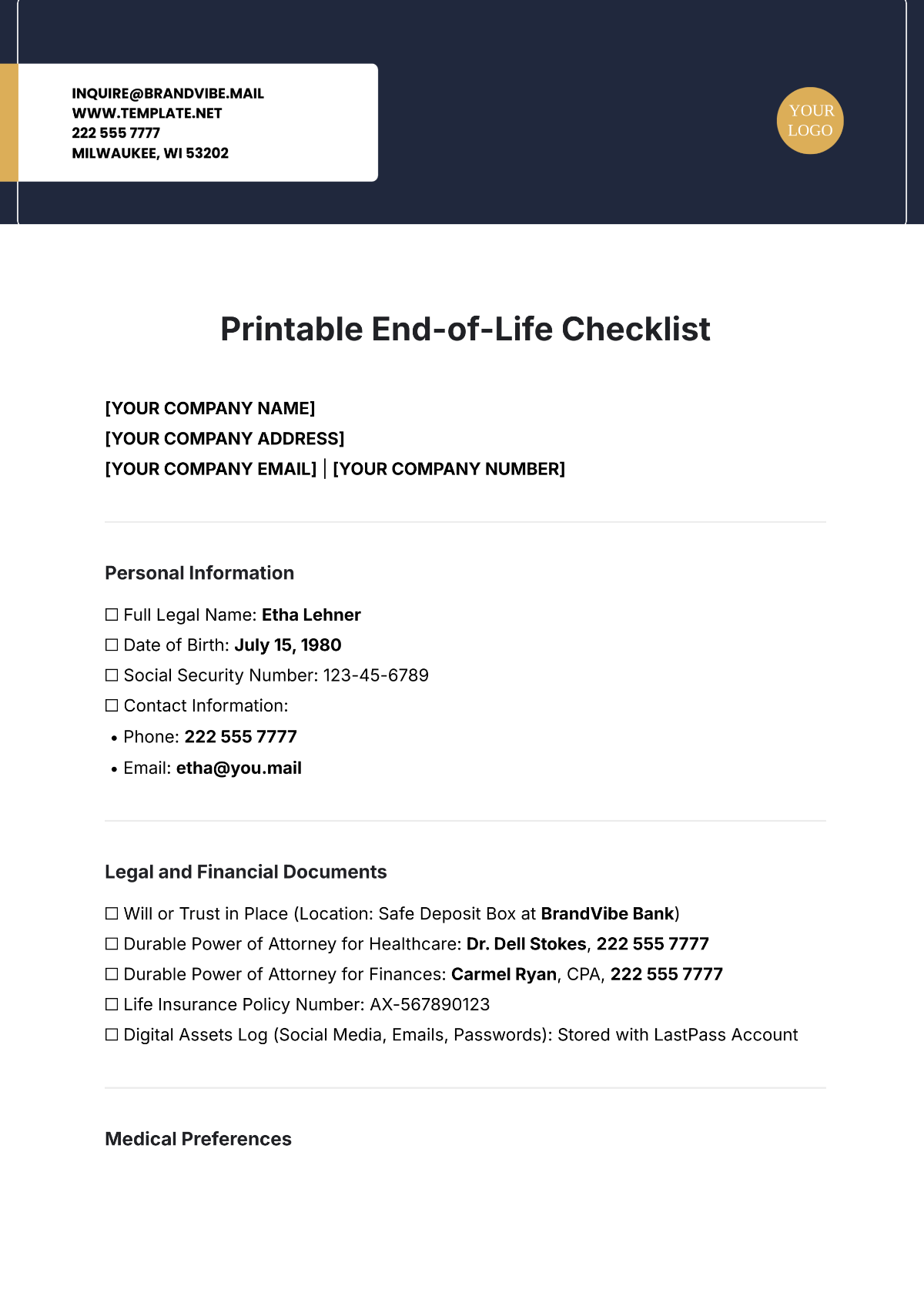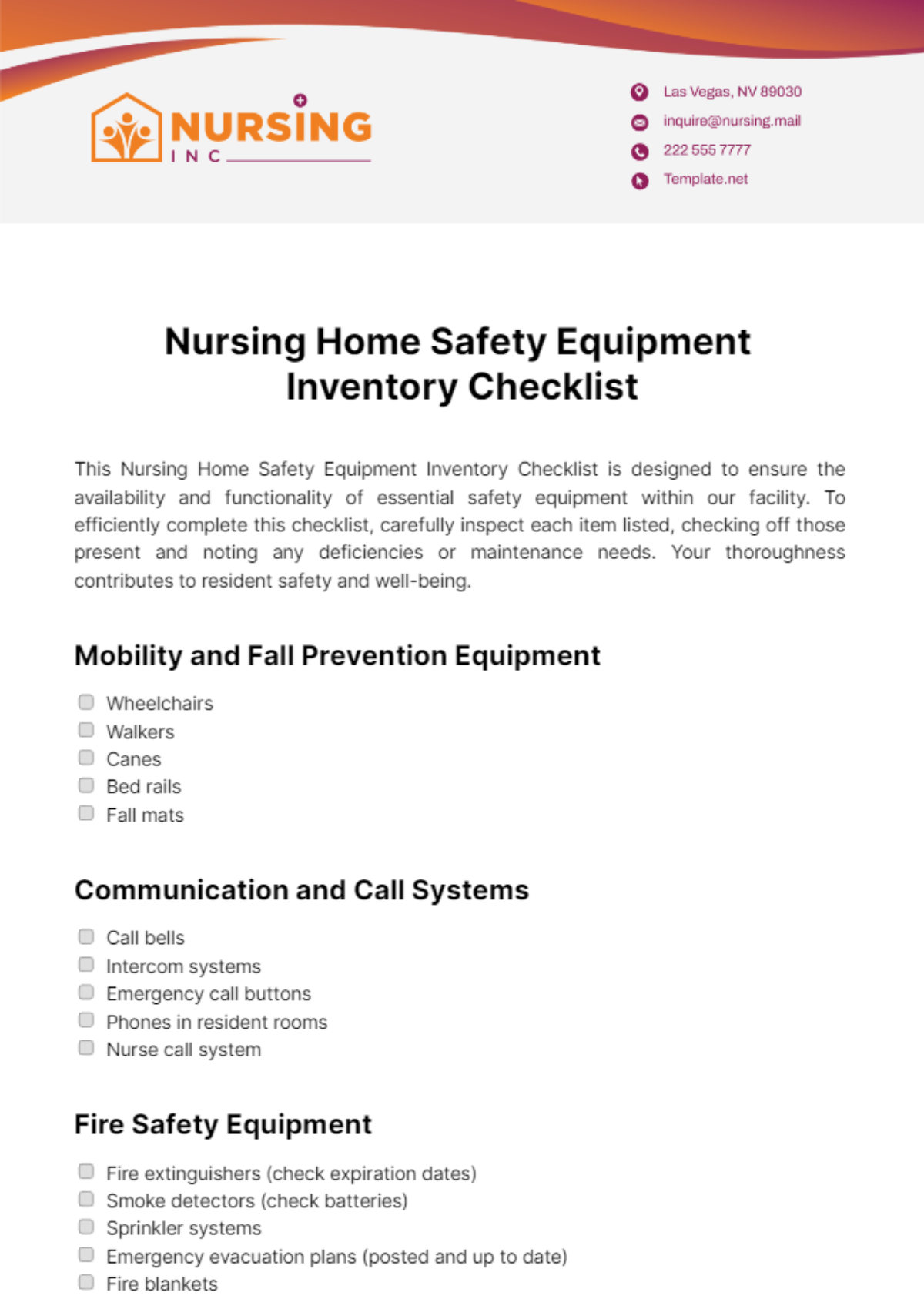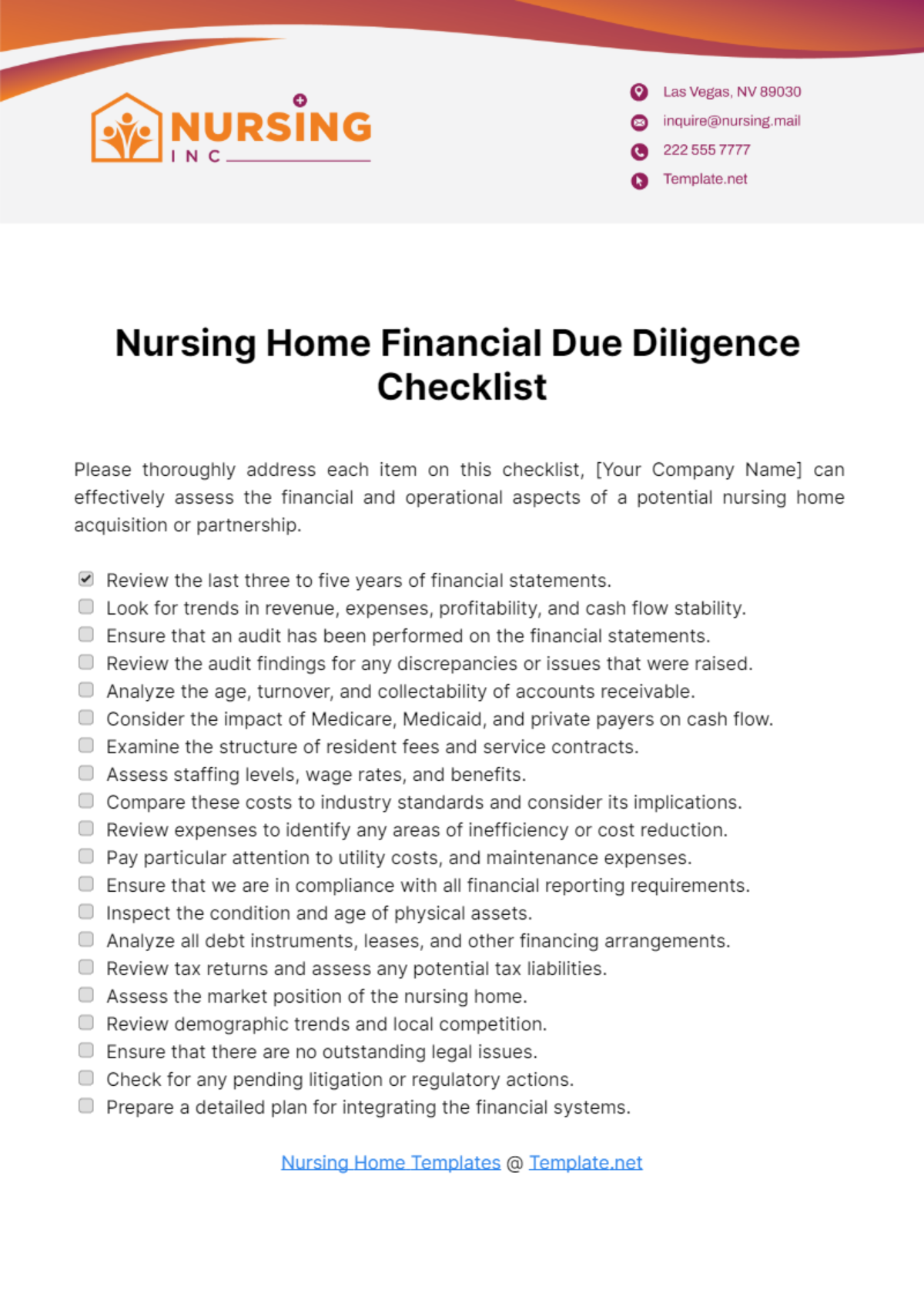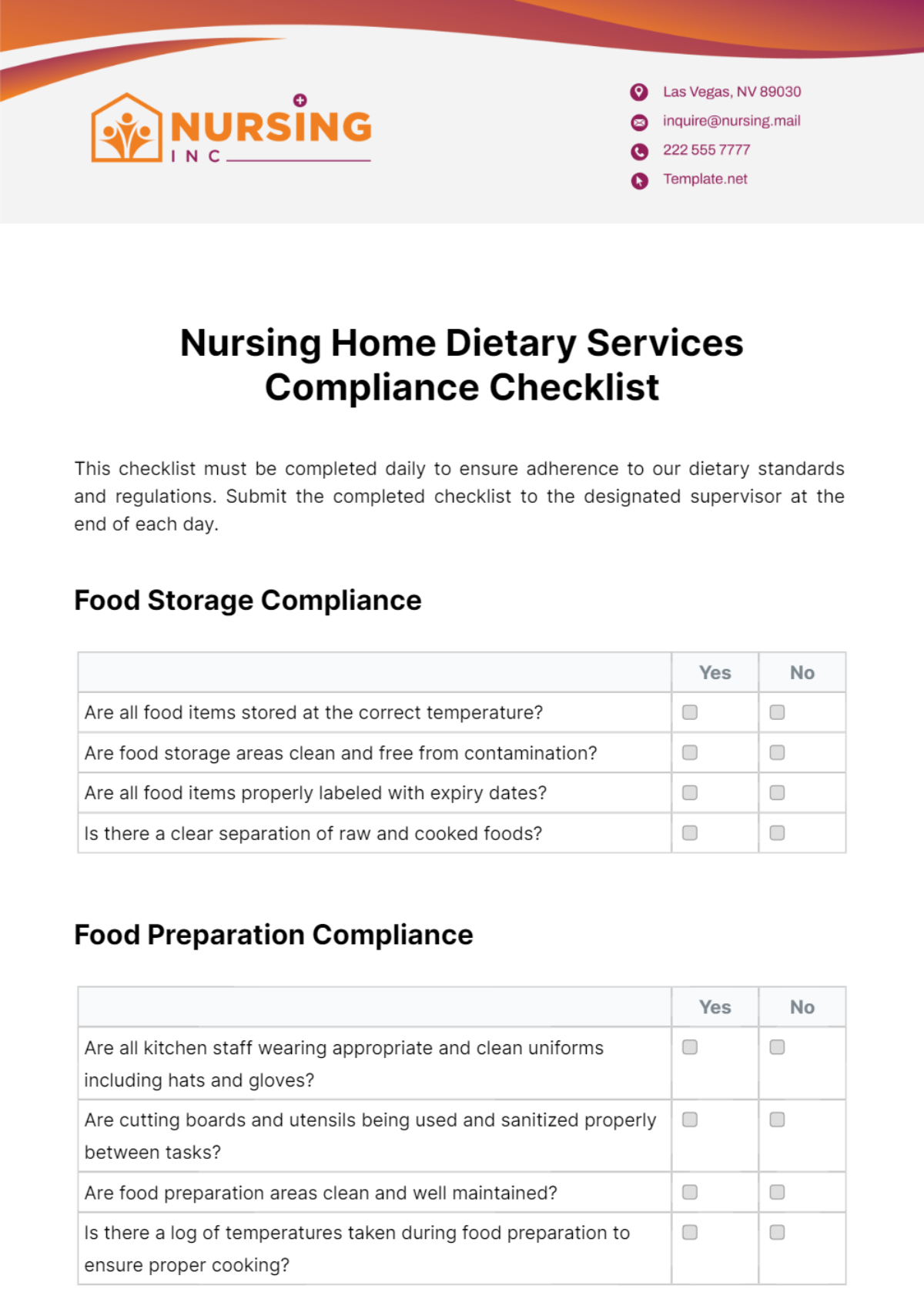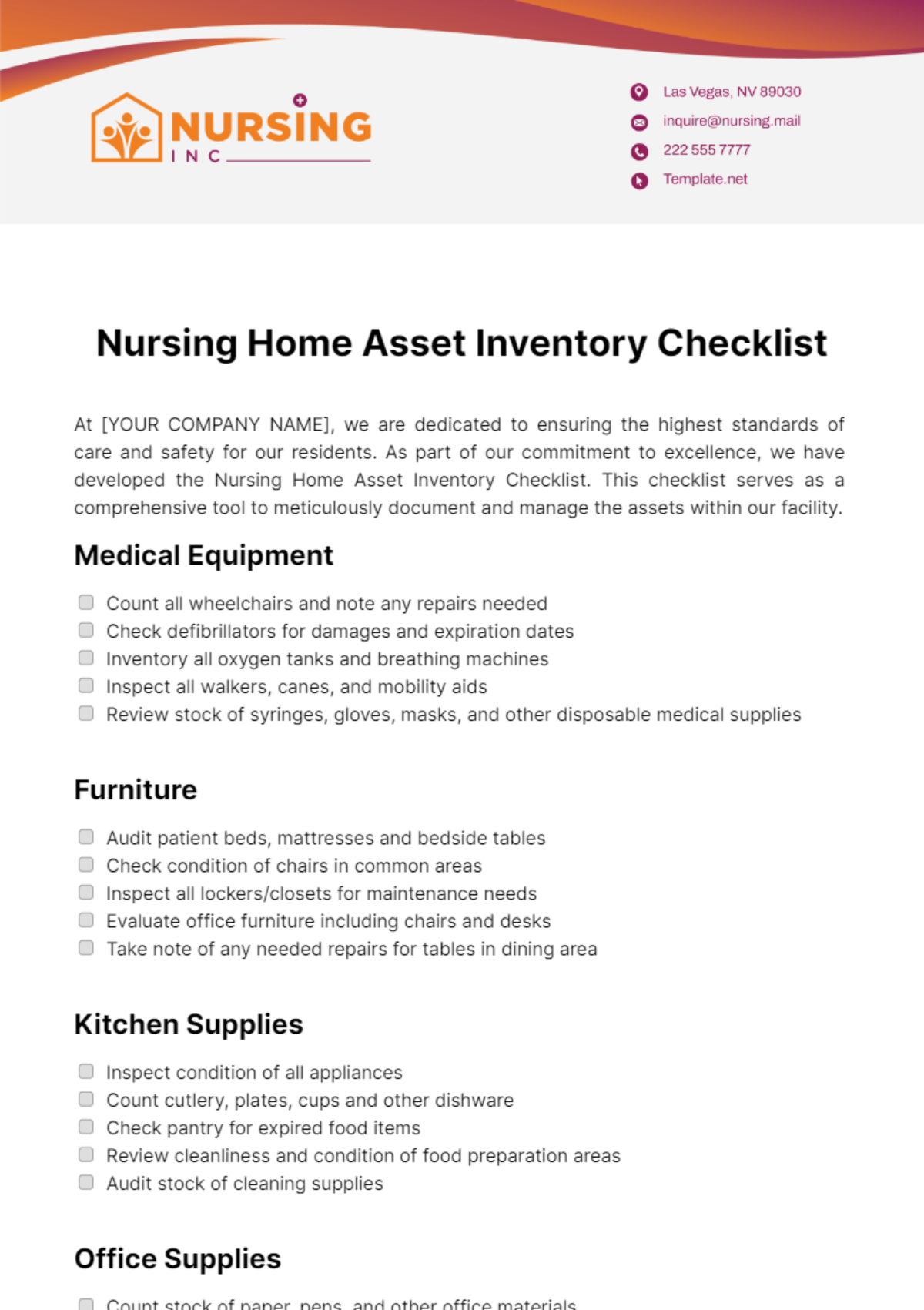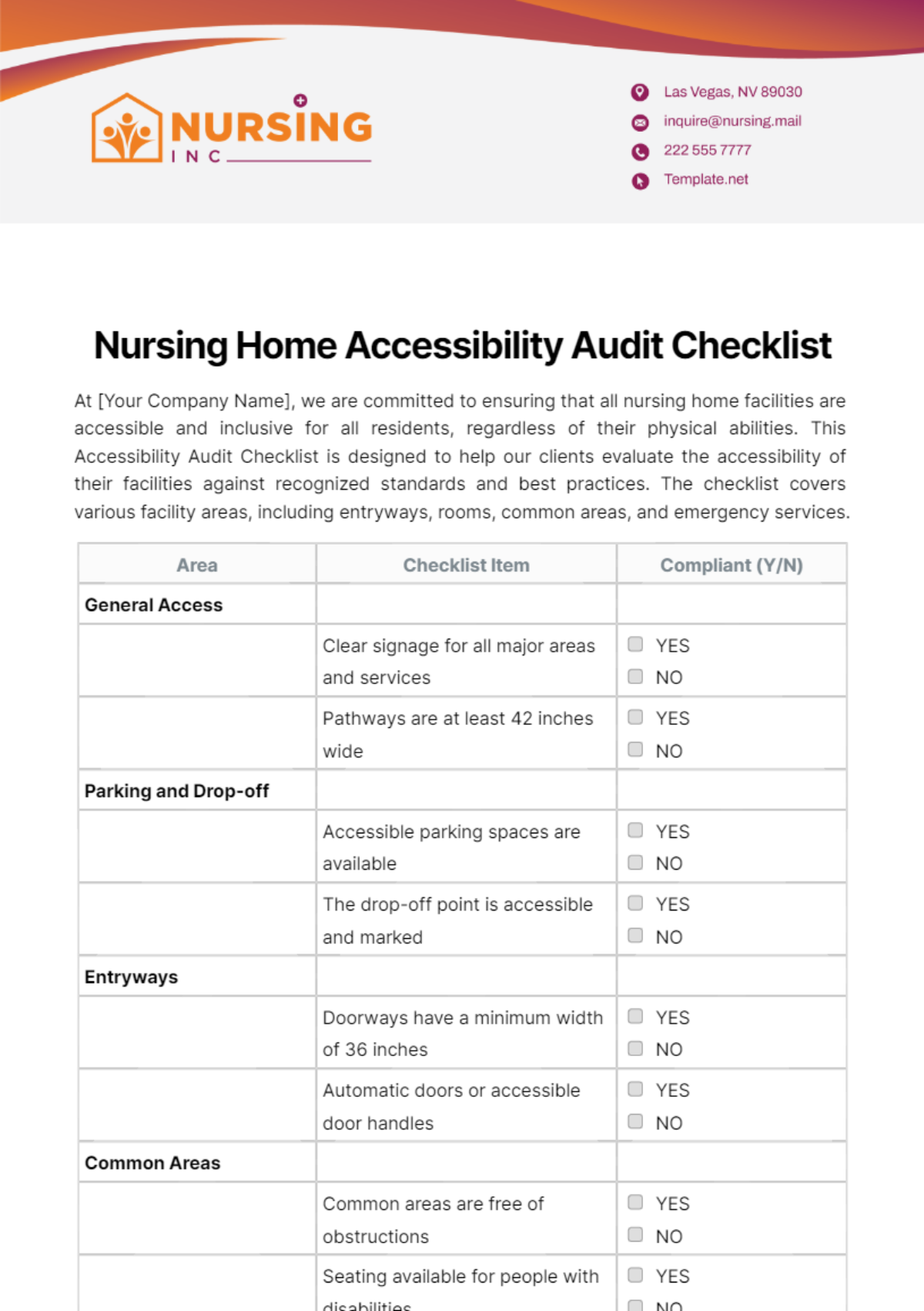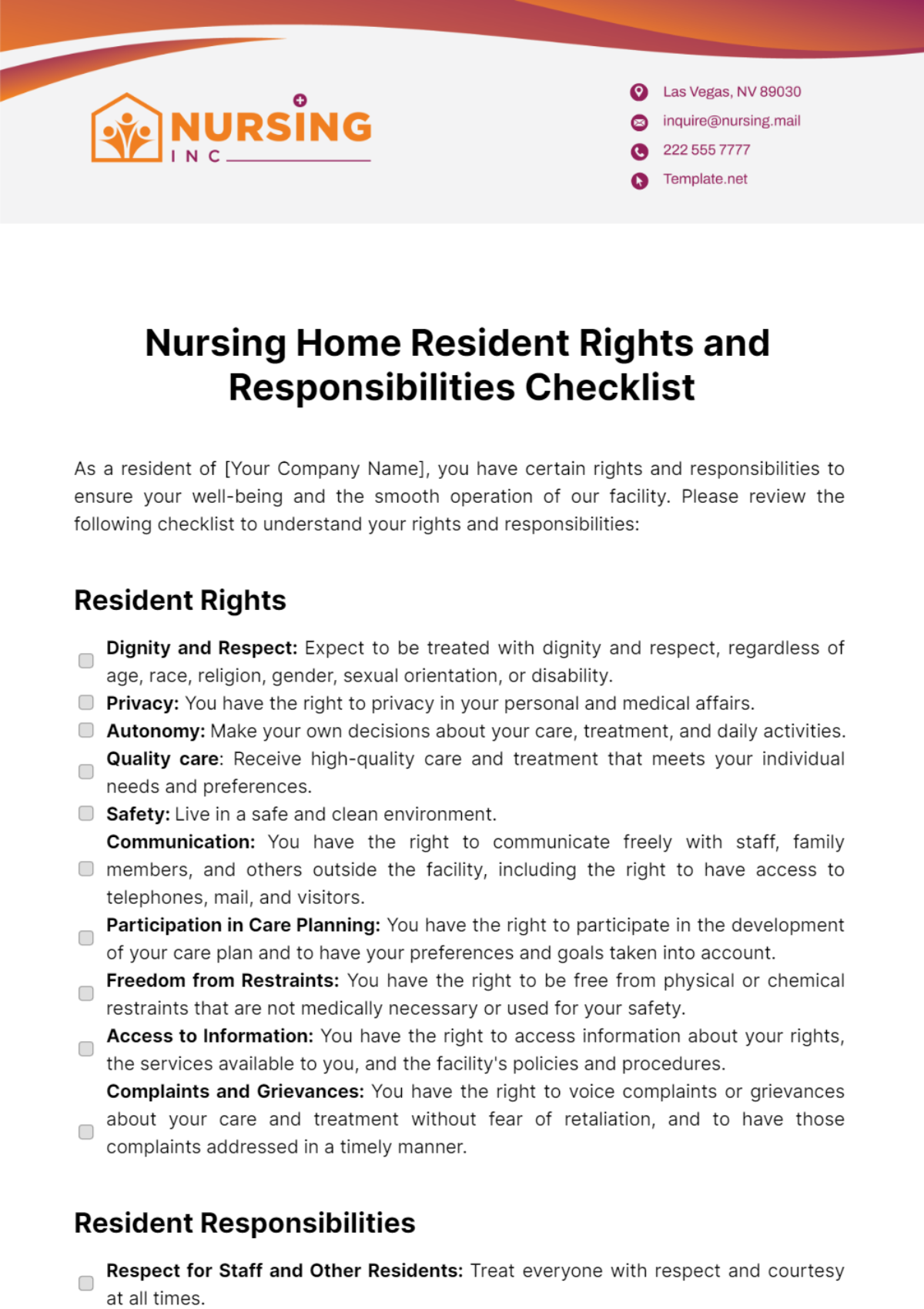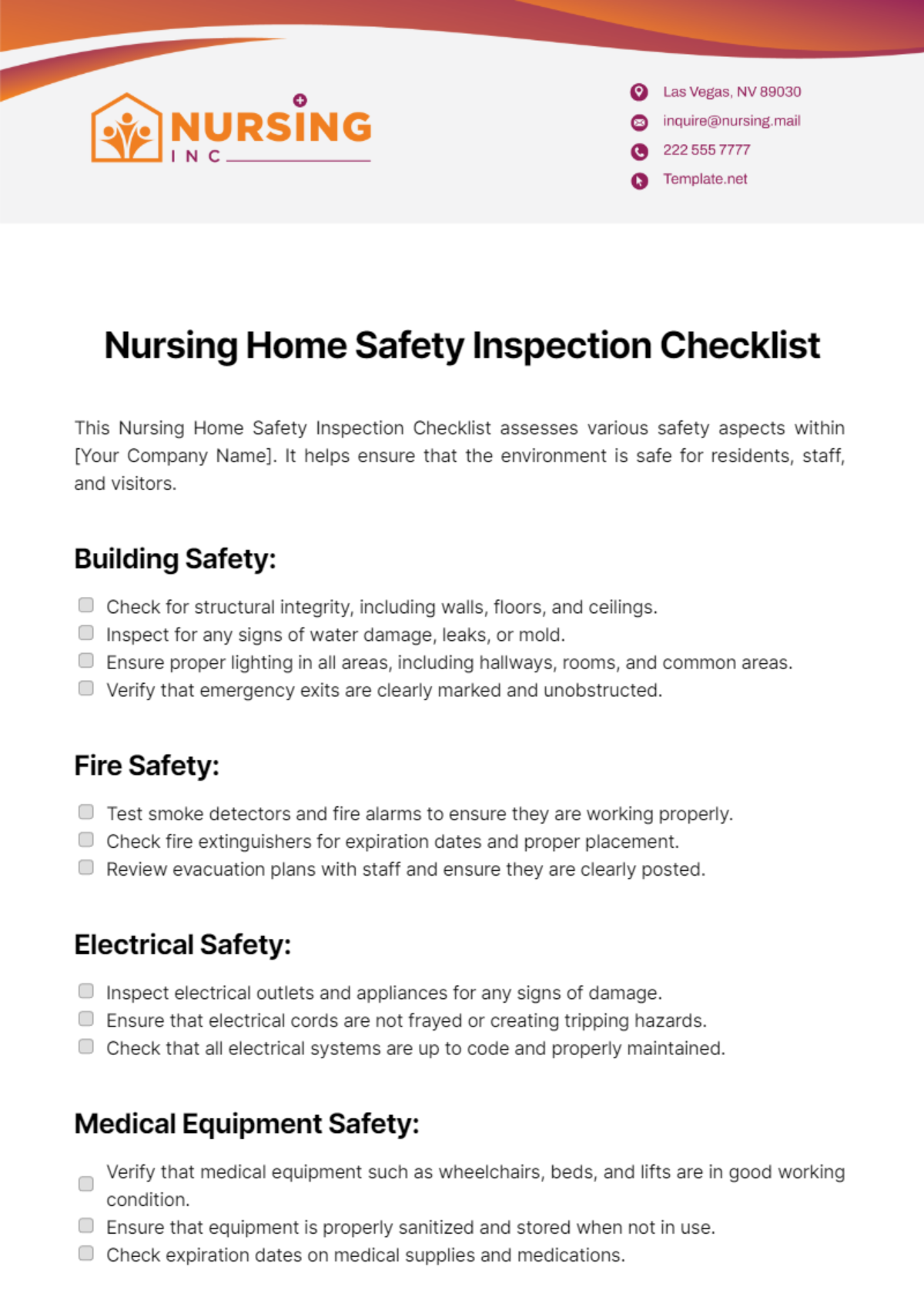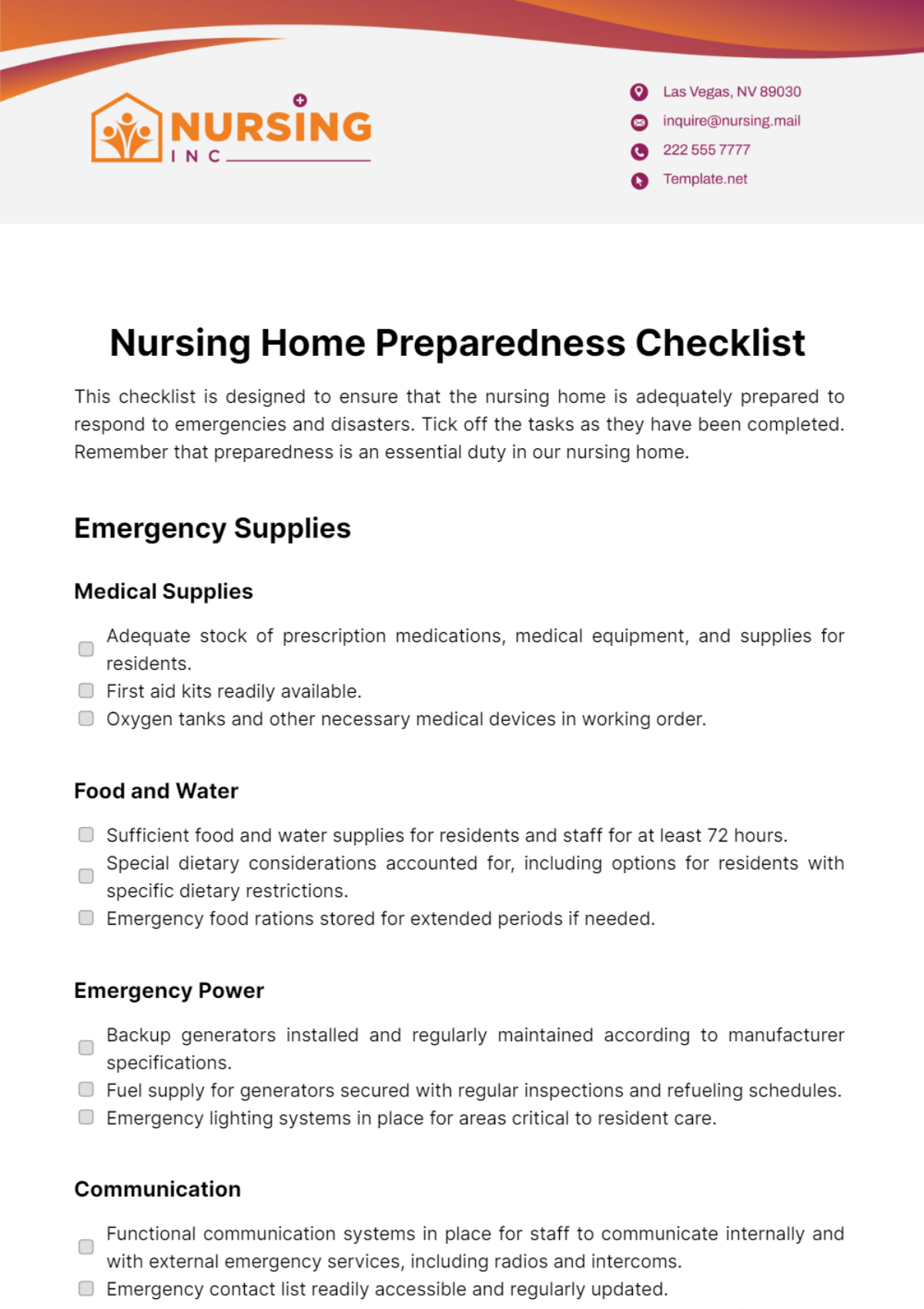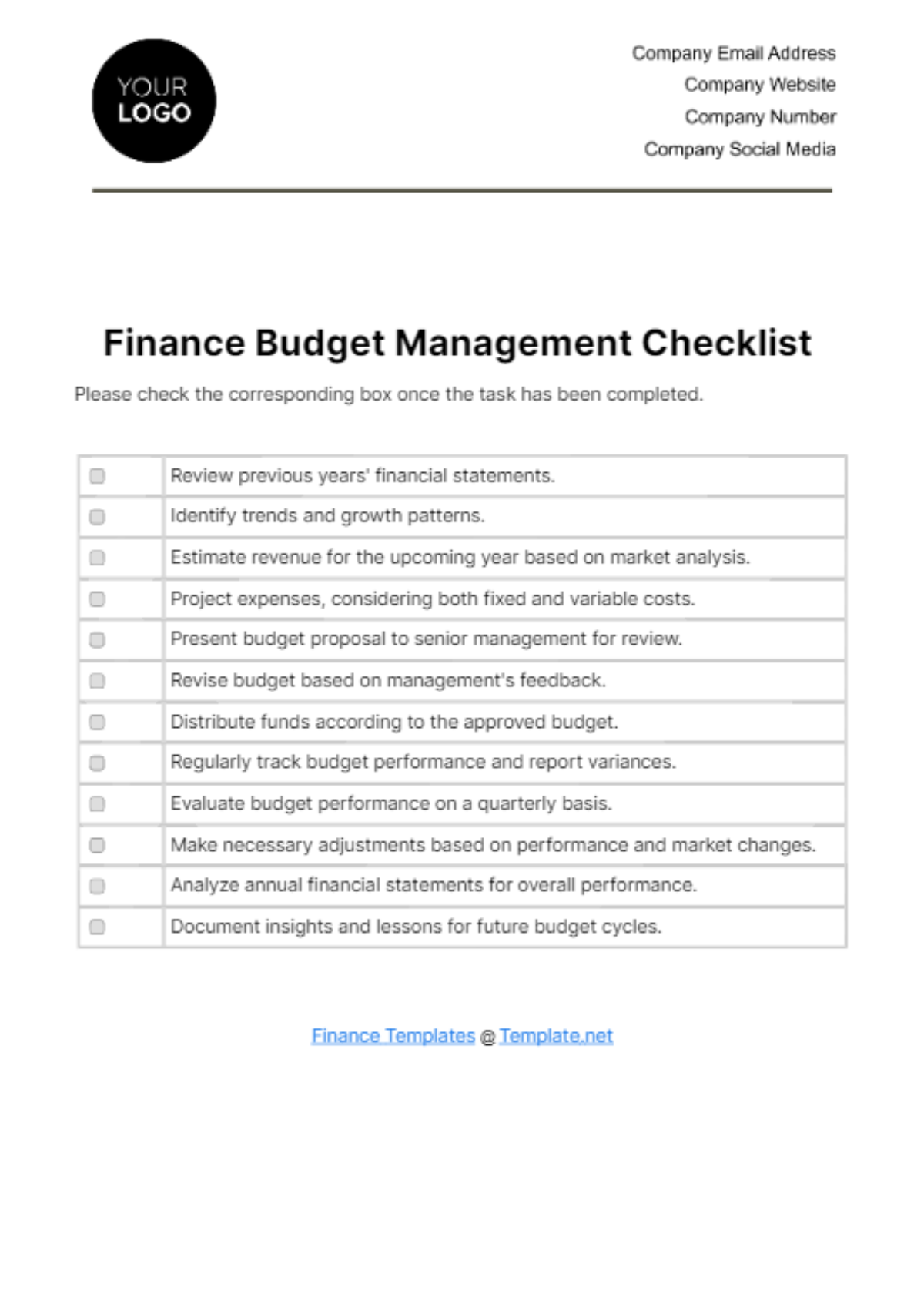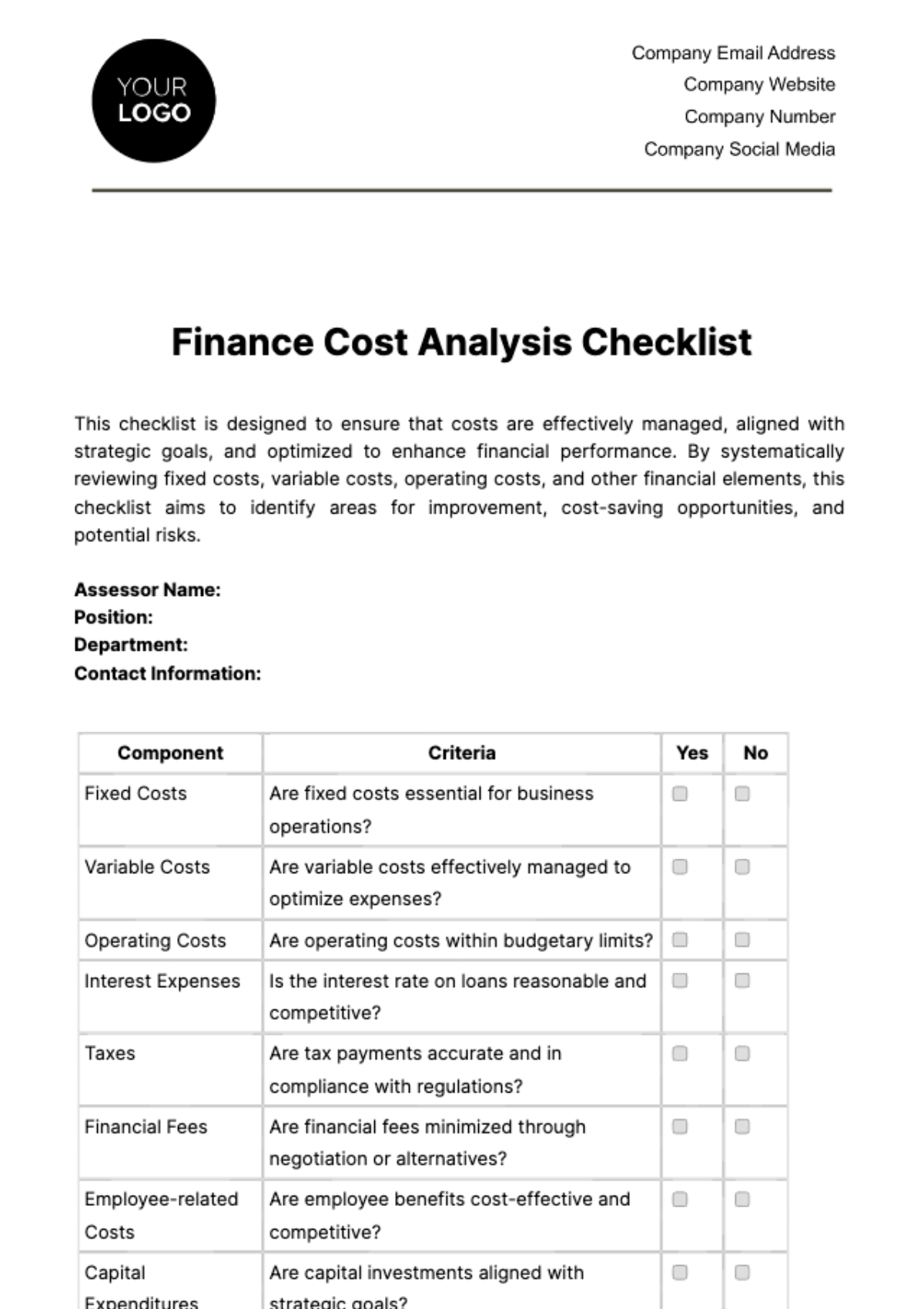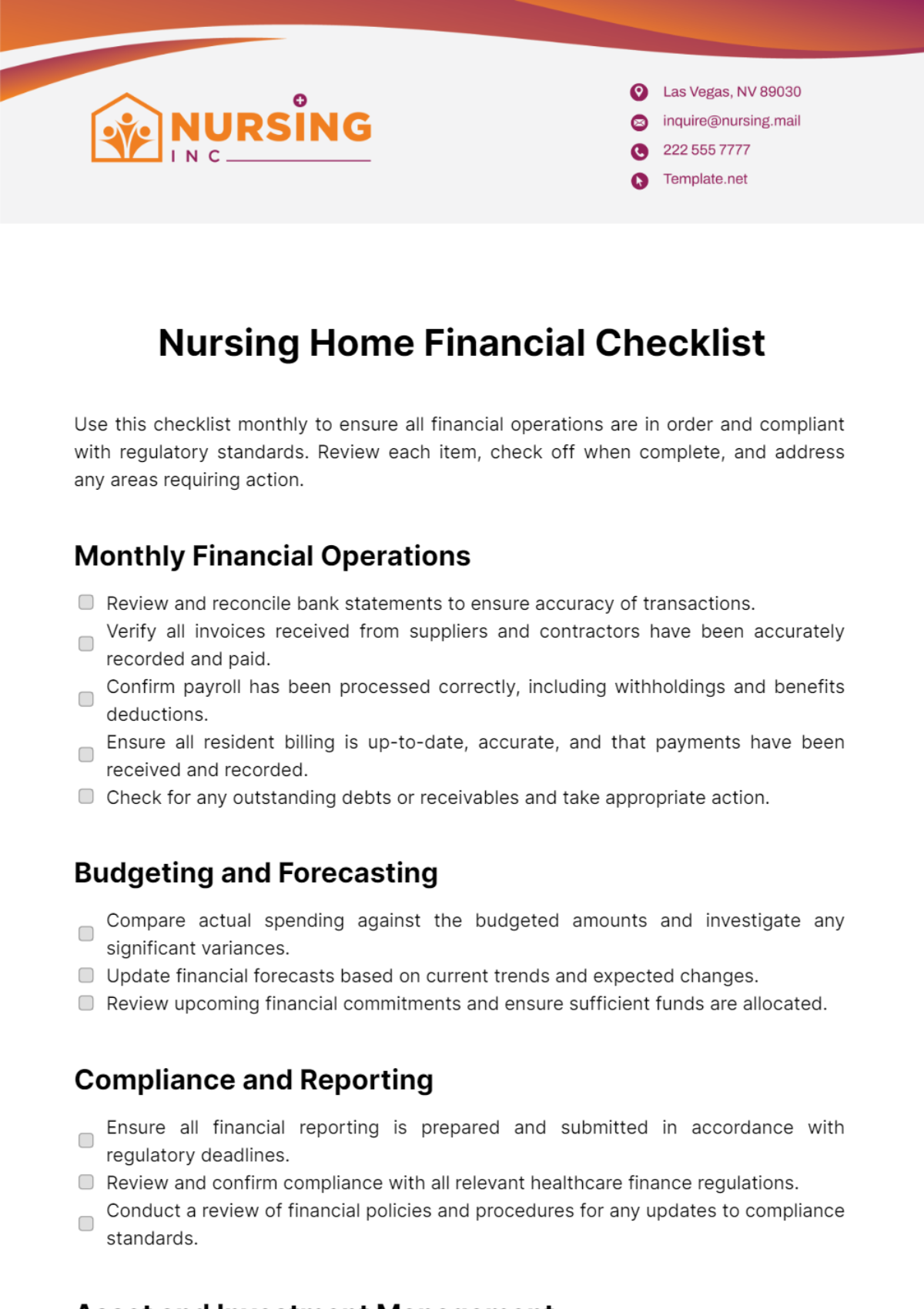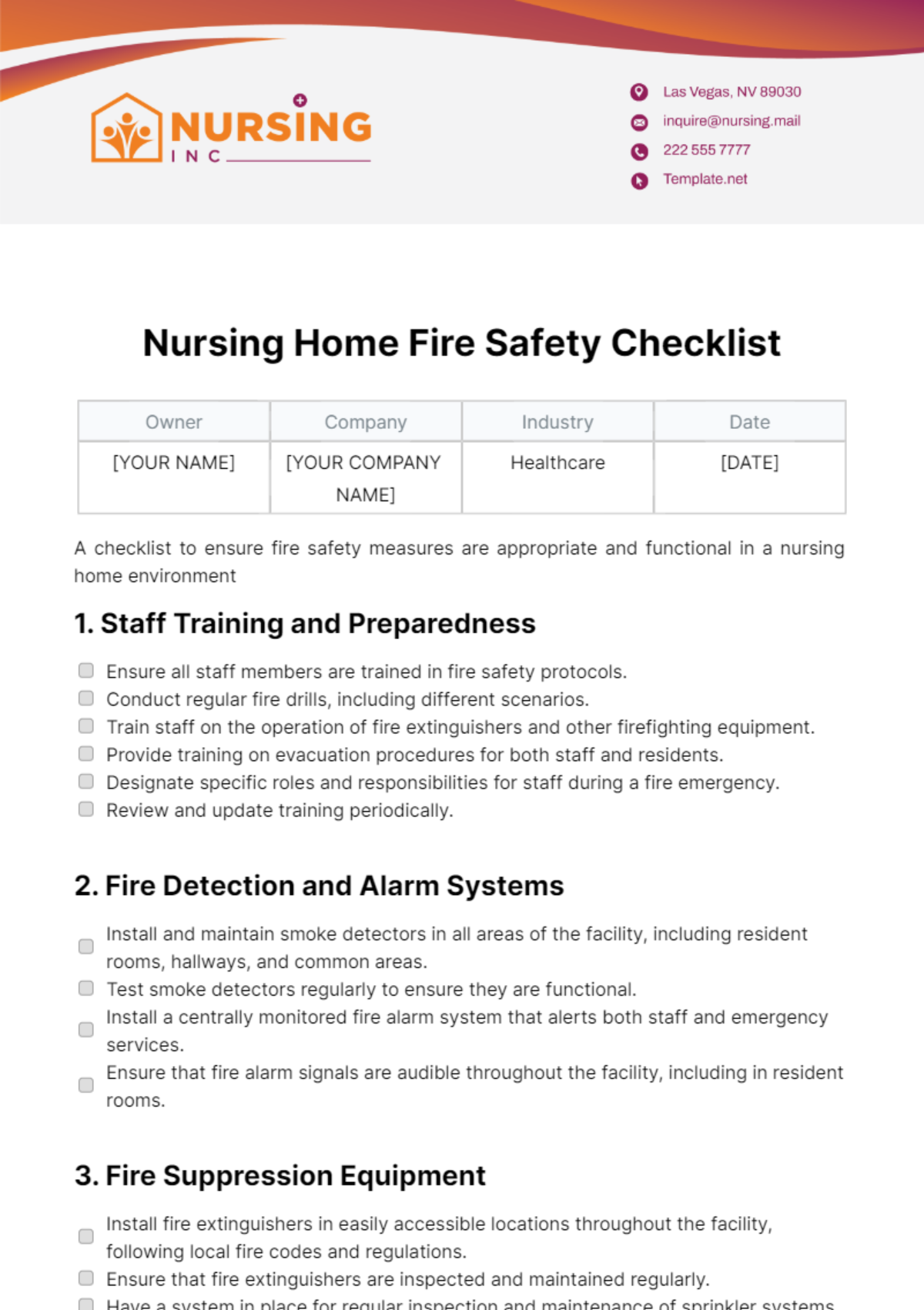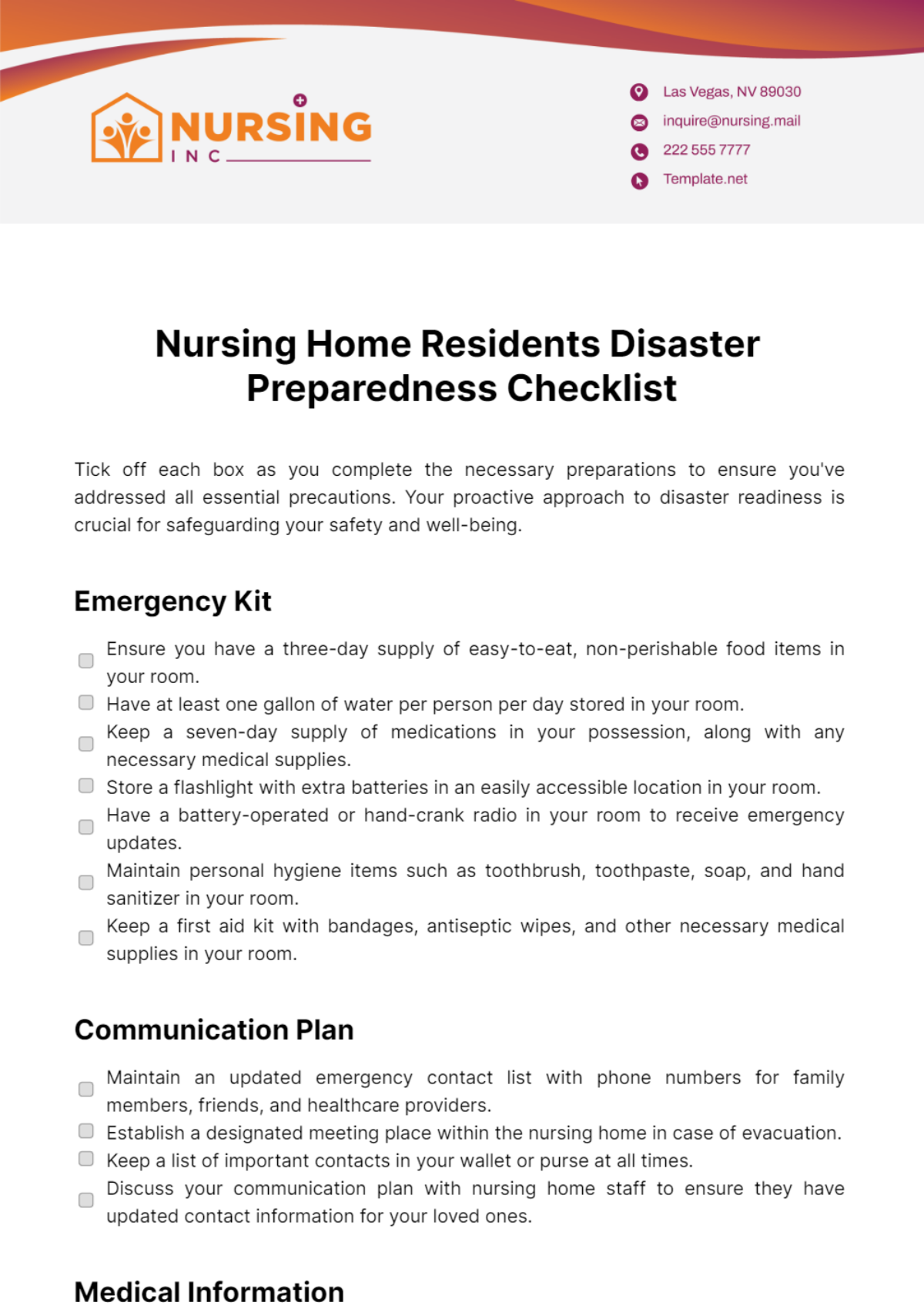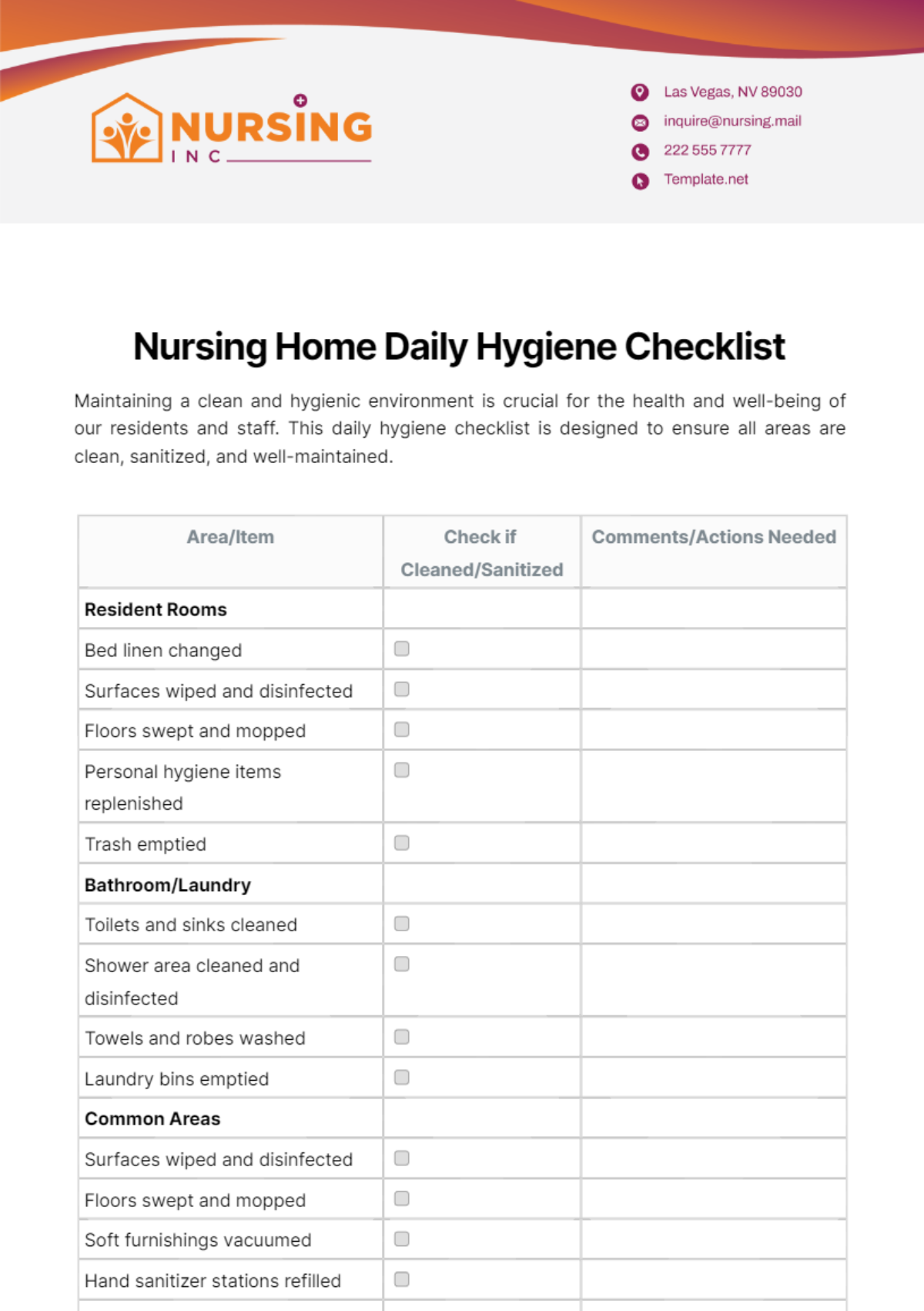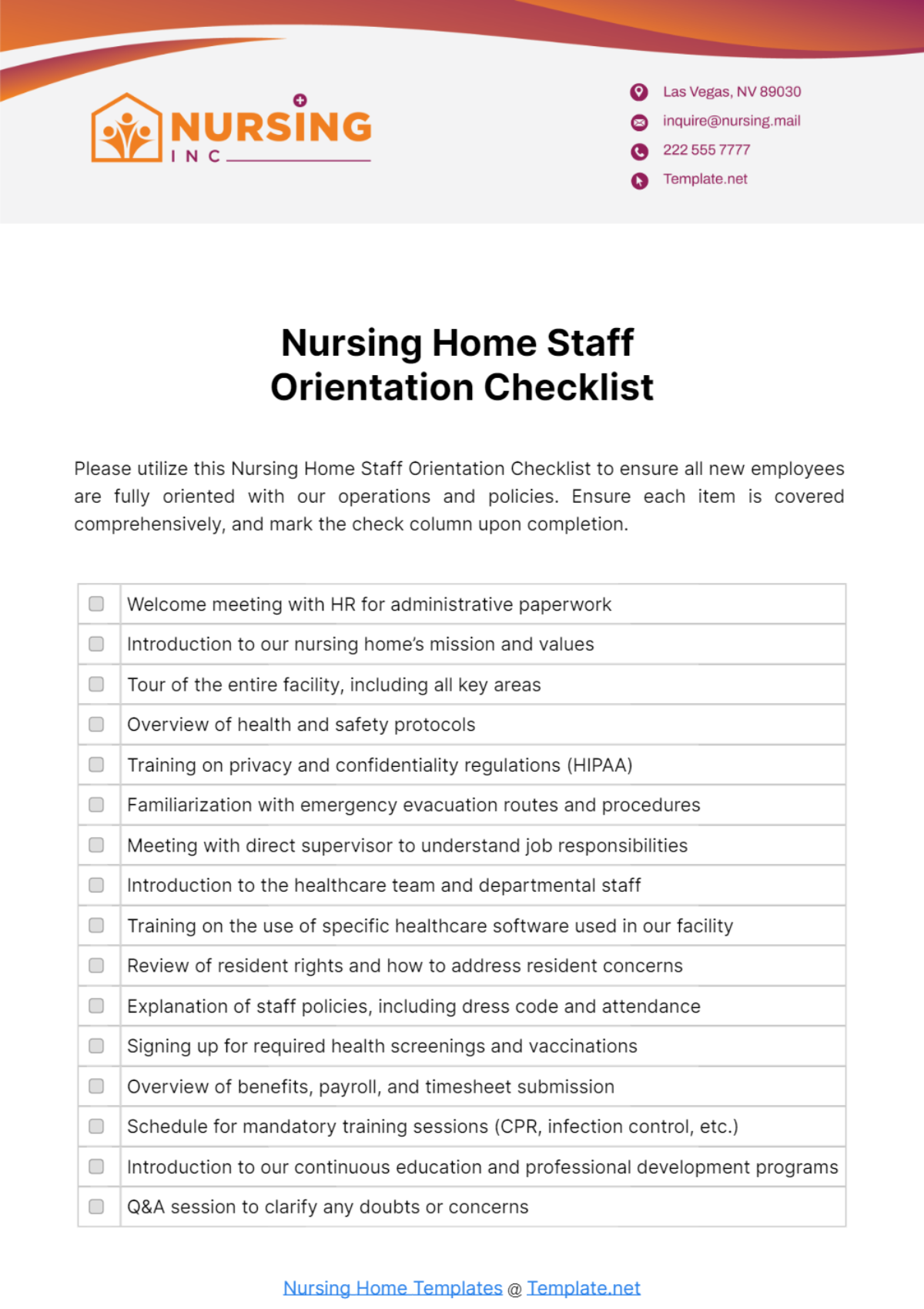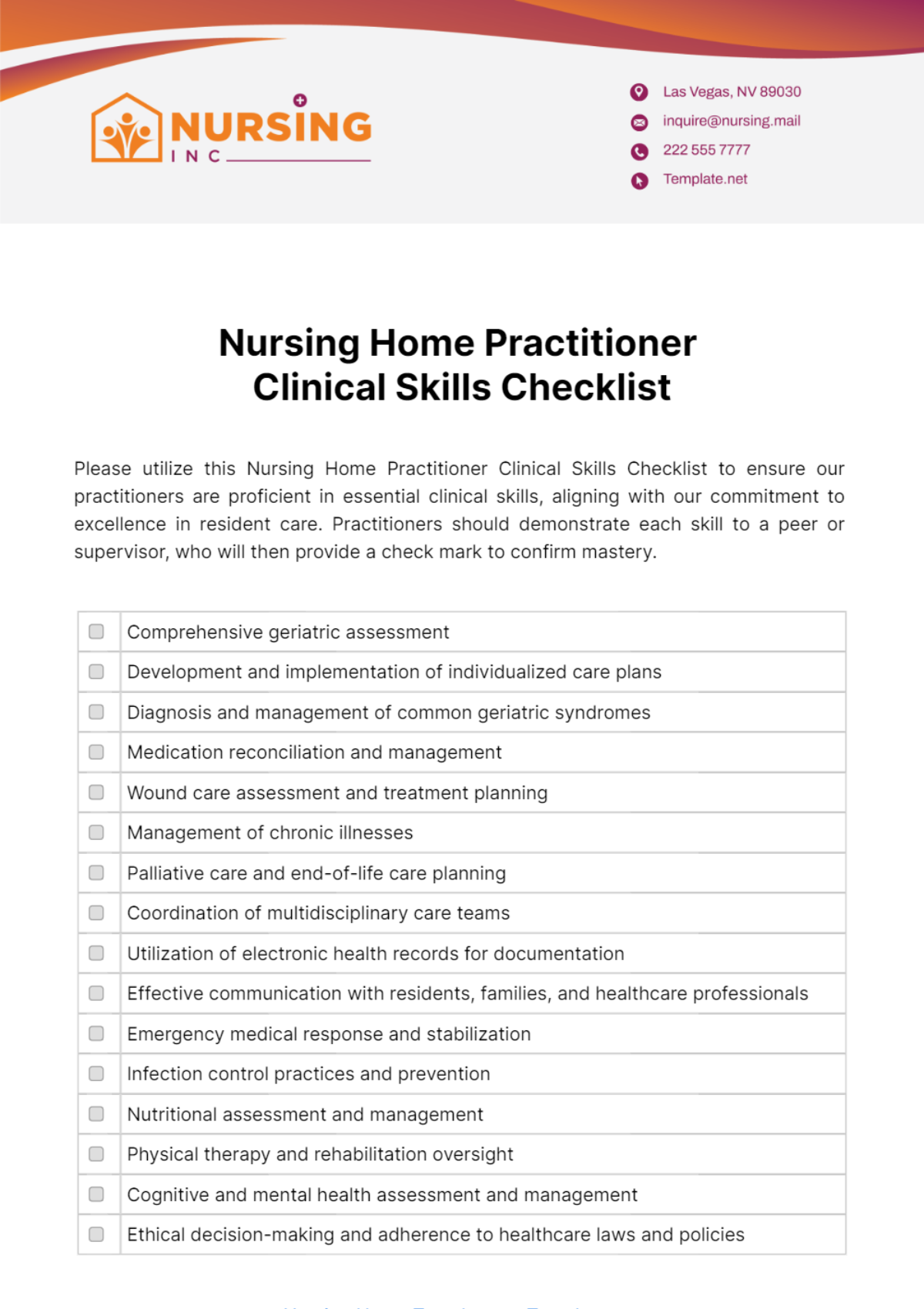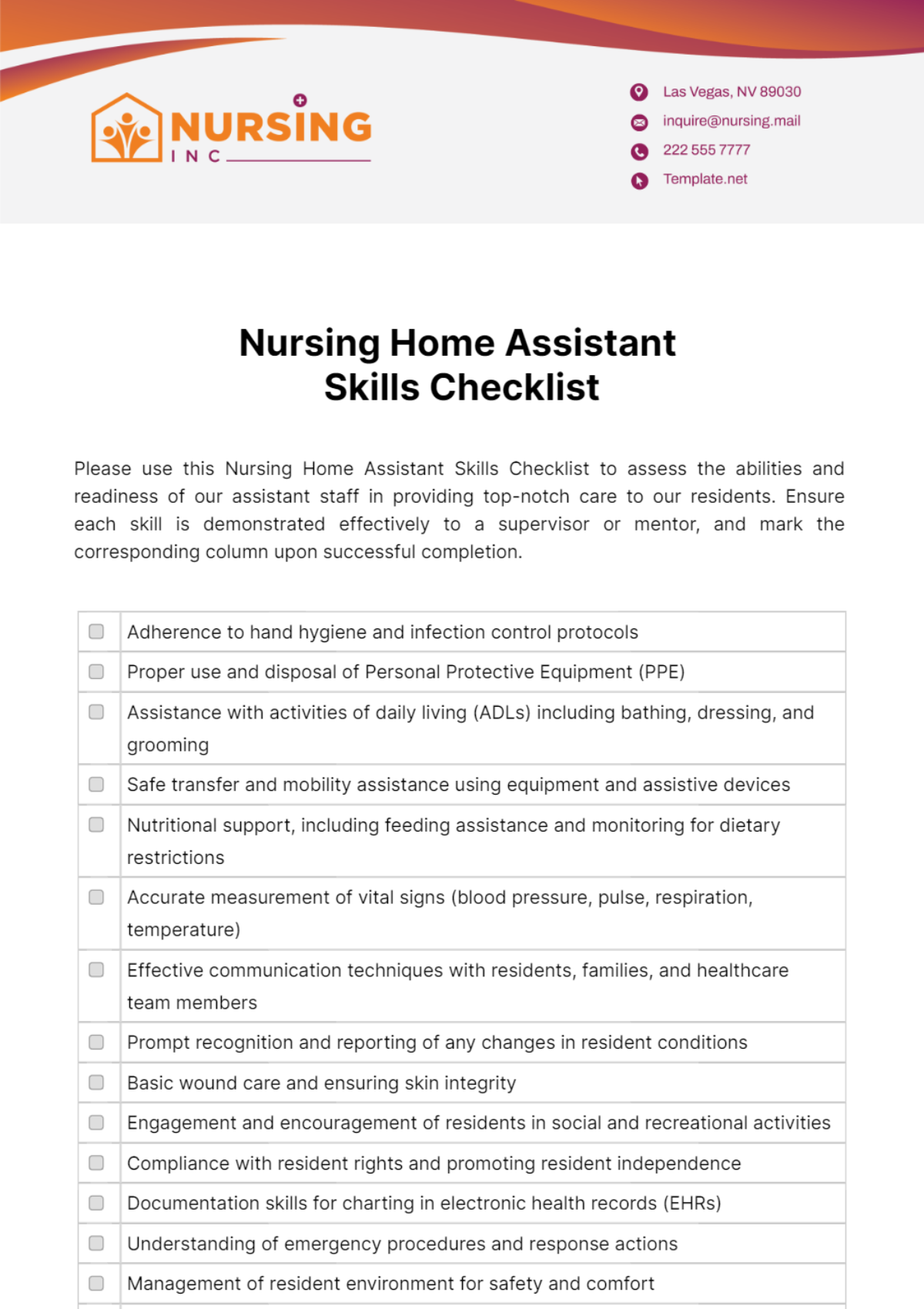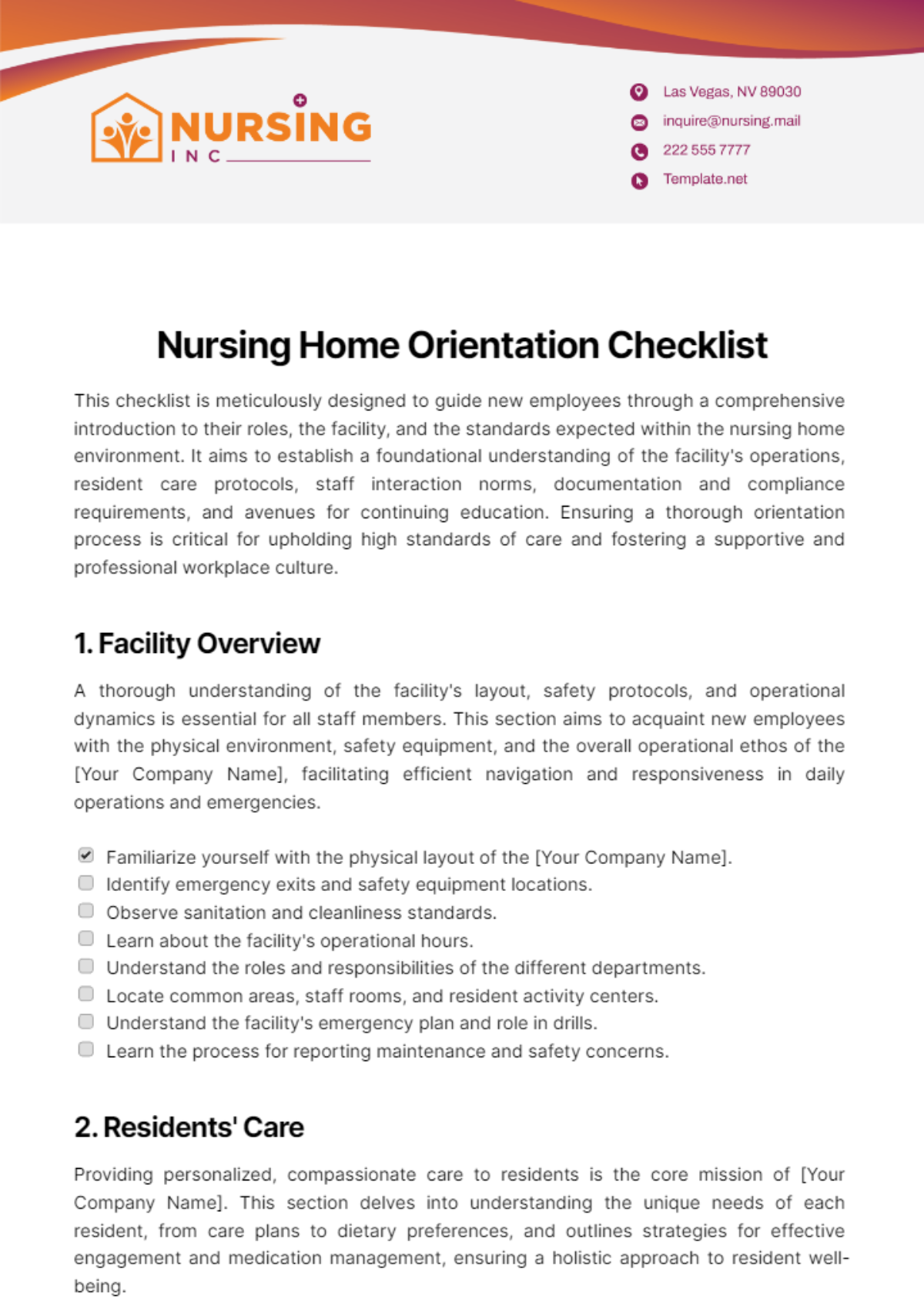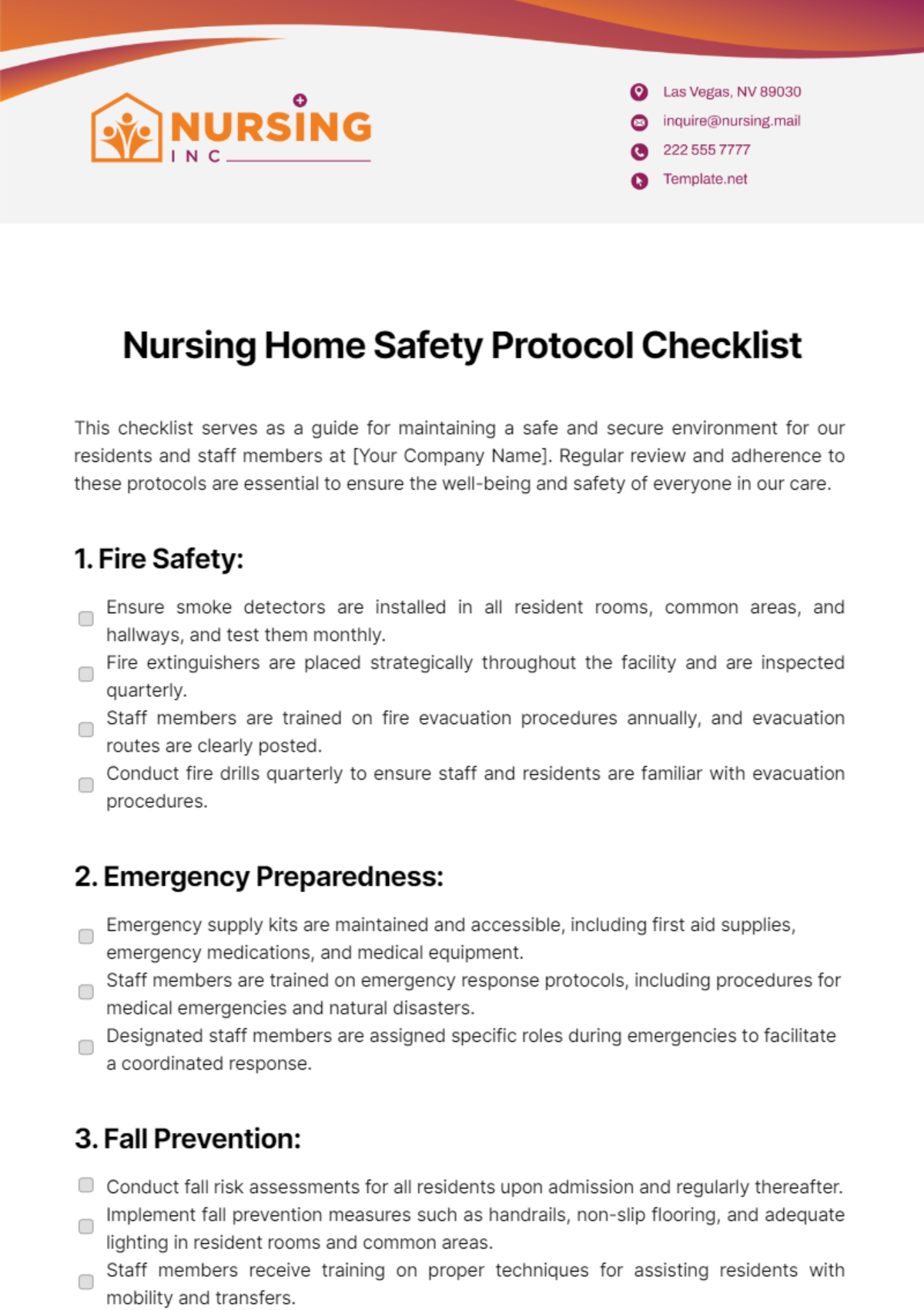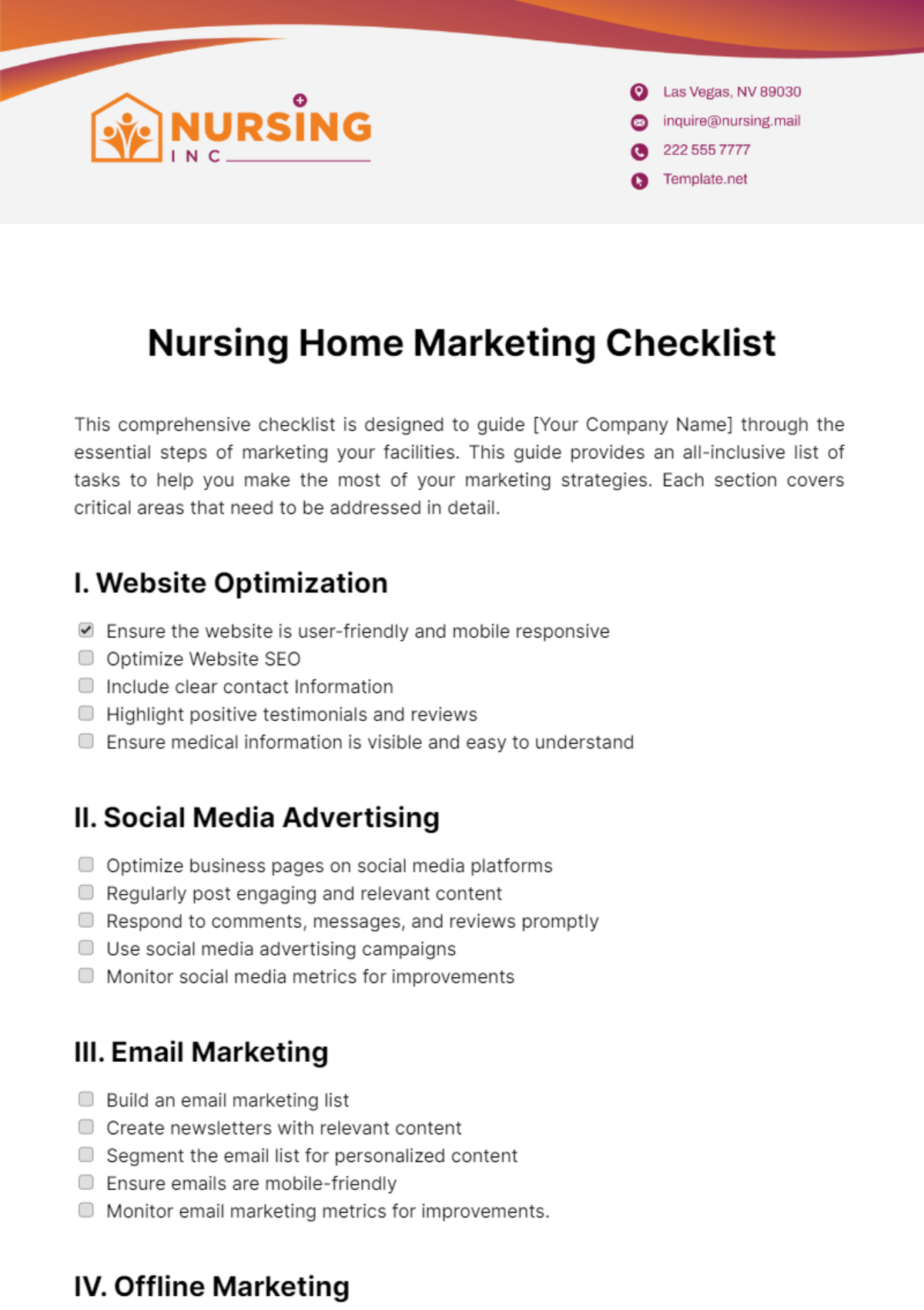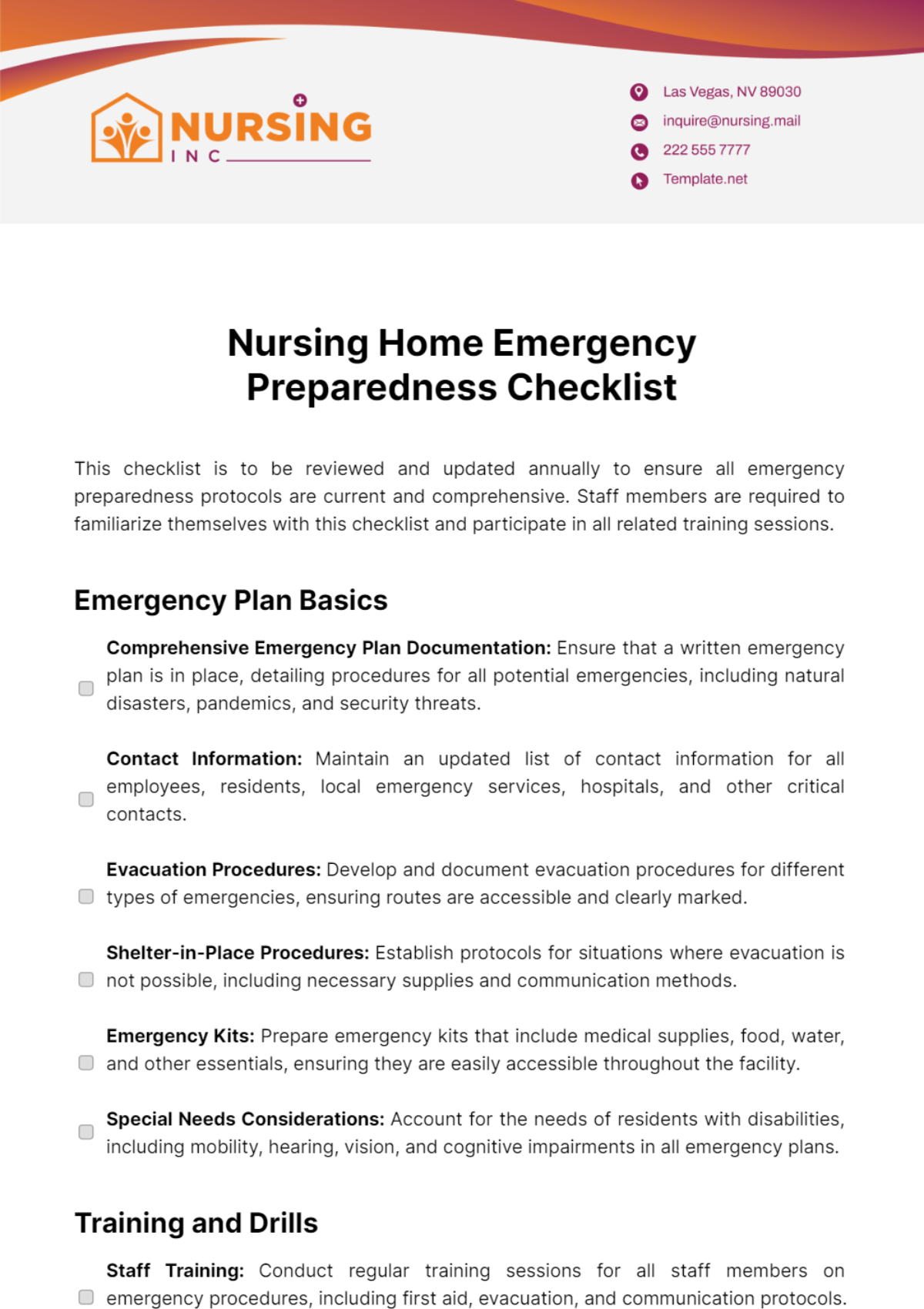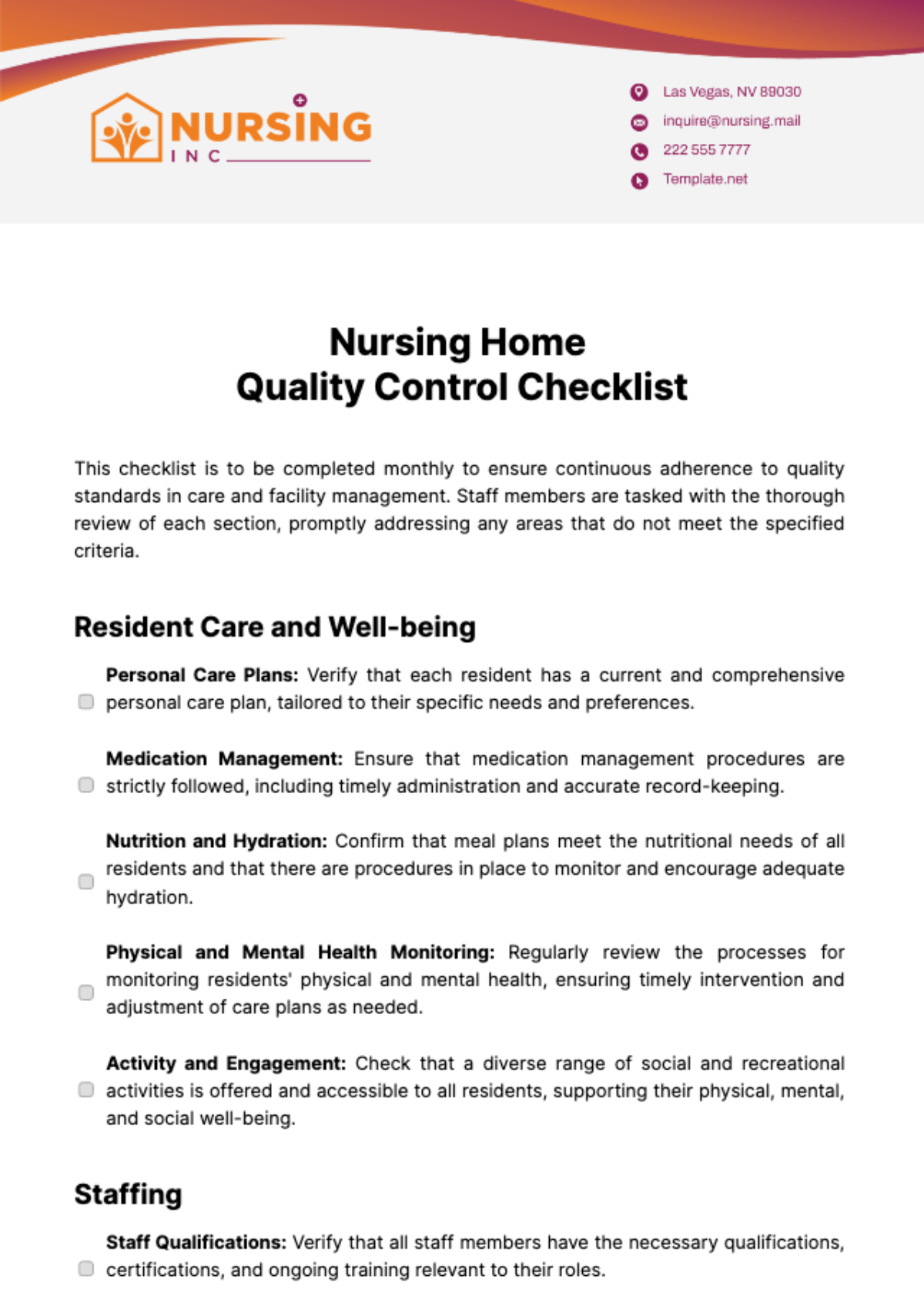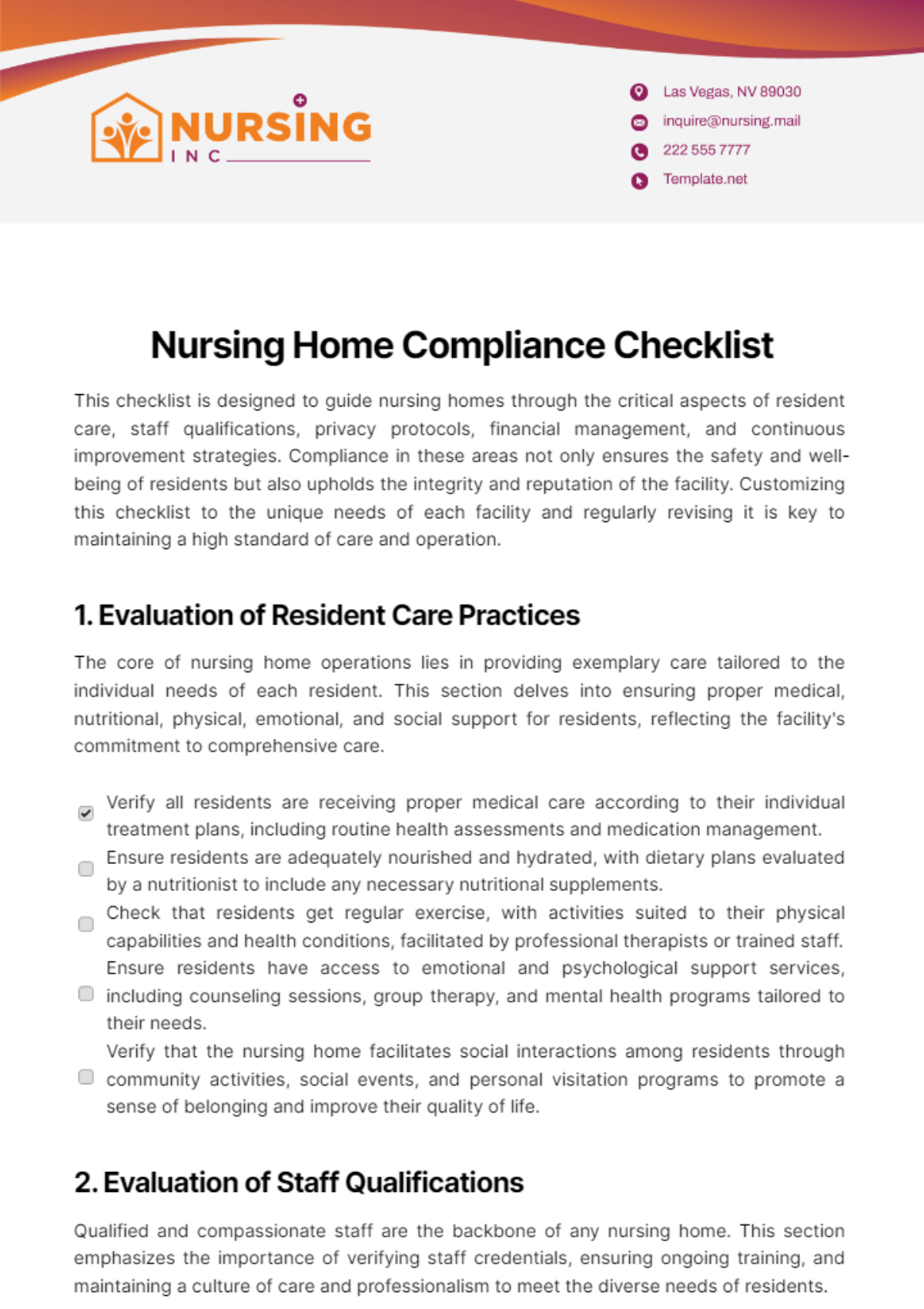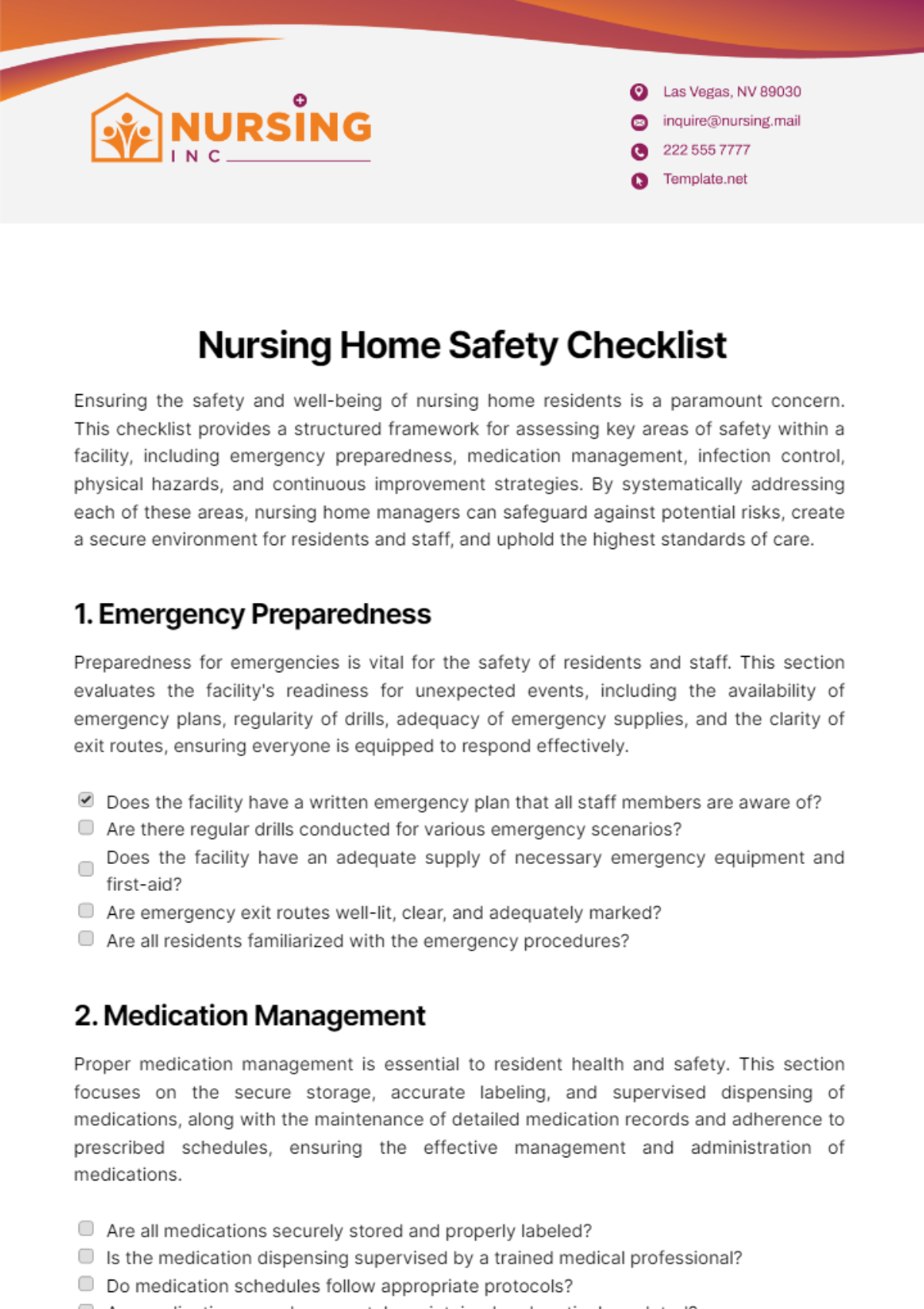Nursing Home Daily Checklist
Prepared by: | [YOUR NAME] |
|---|---|
Date: | [DATE] |
Goal: | Ensure proper care and wellness of nursing home residents. |
This daily checklist serves as a guiding framework to ensure that all aspects of our operations, from facility maintenance to resident care and staff responsibilities, are executed with precision and care.
I. Overall Facility Check
A. Building Maintenance
Inspect exterior for any damages or hazards.
Check interior for cleanliness and safety.
Ensure proper functioning of utilities (electricity, water, HVAC).
B. Safety Measures
Confirm fire alarms and extinguishers are in working order.
Verify emergency exits are unobstructed.
Check security systems (e.g., CCTV) for functionality.
C. Equipment Inspection
Check medical equipment (wheelchairs, beds, lifts) for proper functioning.
Inspect kitchen appliances for safety and cleanliness.
Verify proper storage of hazardous materials (cleaning supplies, medications).
II. Resident Care
A. Health Monitoring
Record vital signs for all residents.
Administer medications according to schedule.
Check for any signs of discomfort or distress in residents.
B. Hygiene and Comfort
Ensure residents are bathed and dressed appropriately.
Assist with toileting needs as required.
Provide regular oral care and grooming.
C. Nutrition and Diet
Confirm meal plans are followed for each resident.
Monitor food intake and assist residents with eating as needed.
Document any dietary restrictions or preferences.
III. Staff Duties
A. Shift Handover
Review notes from previous shift regarding resident care.
Communicate any important updates or concerns to incoming staff.
Confirm staffing levels for the day and assign duties accordingly.
B. Training and Development
Conduct training sessions for new staff members.
Provide ongoing education for existing staff on best practices.
Document staff training and certifications.
C. Documentation and Reporting
Complete daily logs for each resident, including health status and activities.
Report any incidents or changes in resident condition to management.
Maintain accurate records of medication administration and treatments.
IV. Communication and Interaction
A. Family Updates
Communicate with residents' families regarding any changes or concerns.
Provide updates on residents' well-being and activities.
Address any questions or requests from family members promptly.
B. Interdepartmental Communication
Coordinate with other departments (e.g., dietary, housekeeping) for resident needs.
Attend staff meetings to discuss resident care plans and facility operations.
Foster a collaborative environment among staff members.
V. Special Considerations
A. Activities and Recreation
Plan and facilitate recreational activities for residents.
Encourage social interaction among residents.
Ensure residents have access to entertainment options (TV, games, reading materials).
B. Health and Wellness Programs
Implement exercise programs tailored to residents' abilities.
Provide opportunities for mental stimulation through puzzles or crafts.
Offer counseling or support groups for residents dealing with emotional issues.
C. Quality Assurance
Conduct regular audits of facility practices and procedures.
Solicit feedback from residents and families on their experiences.
Implement improvements based on feedback and audit findings.
